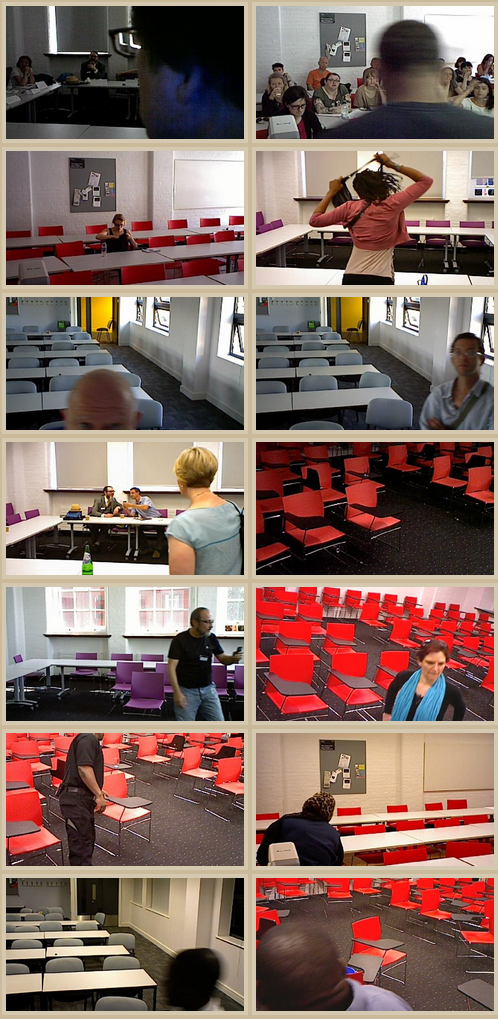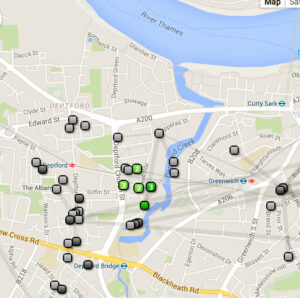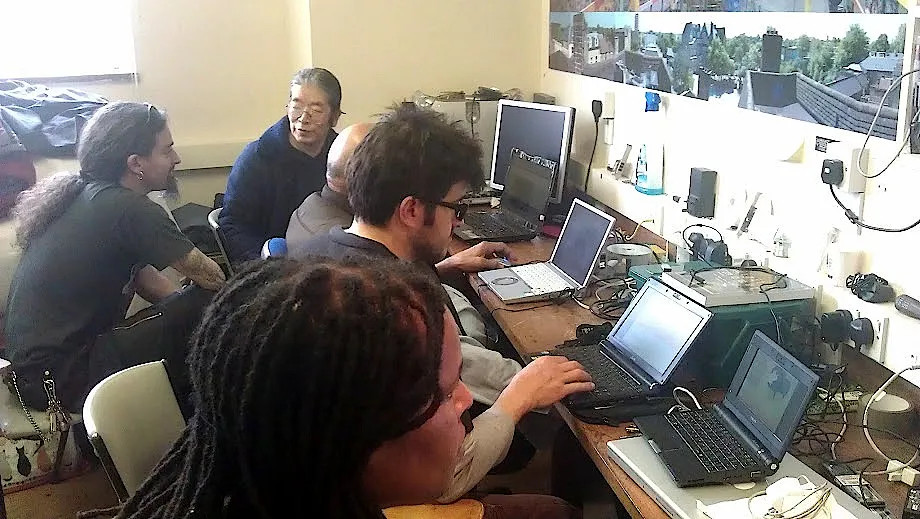91995
1
apa
30
default
133
https://www.kiddingthecity.org/wp-content/plugins/zotpress/
%7B%22status%22%3A%22success%22%2C%22updateneeded%22%3Afalse%2C%22instance%22%3Afalse%2C%22meta%22%3A%7B%22request_last%22%3A0%2C%22request_next%22%3A0%2C%22used_cache%22%3Atrue%7D%2C%22data%22%3A%5B%7B%22key%22%3A%22PXRS4MJE%22%2C%22library%22%3A%7B%22id%22%3A91995%7D%2C%22meta%22%3A%7B%22creatorSummary%22%3A%22McQuillan%22%2C%22parsedDate%22%3A%222025-06-26%22%2C%22numChildren%22%3A0%7D%2C%22bib%22%3A%22%3Cdiv%20class%3D%5C%22csl-bib-body%5C%22%20style%3D%5C%22line-height%3A%202%3B%20padding-left%3A%201em%3B%20text-indent%3A-1em%3B%5C%22%3E%5Cn%20%20%3Cdiv%20class%3D%5C%22csl-entry%5C%22%3EMcQuillan%2C%20D.%20%282025%2C%20June%2026%29.%20%3Ci%3EResisting%20the%20Techno-Fascist%20Takeover%3A%20Are%20We%20Ready%20for%20Decomputing%3F%3C%5C%2Fi%3E%20%3Ca%20class%3D%27zp-ItemURL%27%20href%3D%27https%3A%5C%2F%5C%2Fberlinergazette.de%5C%2Fresisting-the-techno-fascist-takeover-are-we-ready-for-decomputing%5C%2F%27%3Ehttps%3A%5C%2F%5C%2Fberlinergazette.de%5C%2Fresisting-the-techno-fascist-takeover-are-we-ready-for-decomputing%5C%2F%3C%5C%2Fa%3E%3C%5C%2Fdiv%3E%5Cn%3C%5C%2Fdiv%3E%22%2C%22data%22%3A%7B%22itemType%22%3A%22blogPost%22%2C%22title%22%3A%22Resisting%20the%20Techno-Fascist%20Takeover%3A%20Are%20We%20Ready%20for%20Decomputing%3F%22%2C%22creators%22%3A%5B%7B%22creatorType%22%3A%22author%22%2C%22firstName%22%3A%22Dan%22%2C%22lastName%22%3A%22McQuillan%22%7D%5D%2C%22abstractNote%22%3A%22Because%20they%20are%20based%20on%20centralization%20and%20abstraction%2C%20our%20current%20sociopolitical%20structures%20are%20susceptible%20to%20being%20replaced%20by%20AI.%20This%20is%20not%20only%20exemplified%20by%20the%20Department%20of%20Government%20Efficiency%20%28DOGE%29%2C%20which%20was%20initiated%20by%20the%20second%20Trump%20administration%3B%20there%20are%20many%20less%20heavily%20publicized%20equivalents%20all%20over%20the%20world%2C%20including%20in%20Europe.%20Recognizing%20that%20our%20societies%20are%20vulnerable%20to%20a%20techno-fascist%20takeover%2C%20Dan%20McQuillan%20evaluates%20the%20risks%20and%20offers%20practical%20strategies%20for%20resistance.%22%2C%22blogTitle%22%3A%22%22%2C%22date%22%3A%222025-06-26%2009%3A23%3A08%22%2C%22url%22%3A%22https%3A%5C%2F%5C%2Fberlinergazette.de%5C%2Fresisting-the-techno-fascist-takeover-are-we-ready-for-decomputing%5C%2F%22%2C%22language%22%3A%22%22%2C%22collections%22%3A%5B%22URX8VM2Z%22%5D%2C%22dateModified%22%3A%222025-06-30T07%3A12%3A56Z%22%7D%7D%2C%7B%22key%22%3A%22CE8RXUPQ%22%2C%22library%22%3A%7B%22id%22%3A91995%7D%2C%22meta%22%3A%7B%22creatorSummary%22%3A%22Cardullo%22%2C%22parsedDate%22%3A%222016%22%2C%22numChildren%22%3A0%7D%2C%22bib%22%3A%22%3Cdiv%20class%3D%5C%22csl-bib-body%5C%22%20style%3D%5C%22line-height%3A%202%3B%20padding-left%3A%201em%3B%20text-indent%3A-1em%3B%5C%22%3E%5Cn%20%20%3Cdiv%20class%3D%5C%22csl-entry%5C%22%3ECardullo%2C%20P.%20%282016%29.%20Anime%3A%20A%20Critical%20Introduction%20%28Book%20Review%29.%20%3Ci%3EVisual%20Studies%3C%5C%2Fi%3E.%3C%5C%2Fdiv%3E%5Cn%3C%5C%2Fdiv%3E%22%2C%22data%22%3A%7B%22itemType%22%3A%22journalArticle%22%2C%22title%22%3A%22Anime%3A%20A%20Critical%20Introduction%20%28Book%20Review%29%22%2C%22creators%22%3A%5B%7B%22creatorType%22%3A%22reviewedAuthor%22%2C%22firstName%22%3A%22Rayna%22%2C%22lastName%22%3A%22Denison%22%7D%2C%7B%22creatorType%22%3A%22author%22%2C%22firstName%22%3A%22Paolo%22%2C%22lastName%22%3A%22Cardullo%22%7D%5D%2C%22abstractNote%22%3A%22%22%2C%22date%22%3A%222016%22%2C%22language%22%3A%22%22%2C%22DOI%22%3A%22%22%2C%22ISSN%22%3A%22%22%2C%22url%22%3A%22%22%2C%22collections%22%3A%5B%226D6VN27T%22%2C%22ZH5IRSAS%22%5D%2C%22dateModified%22%3A%222025-06-25T04%3A13%3A16Z%22%7D%7D%2C%7B%22key%22%3A%22JP2FX5IE%22%2C%22library%22%3A%7B%22id%22%3A91995%7D%2C%22meta%22%3A%7B%22creatorSummary%22%3A%22Cardullo%20et%20al.%22%2C%22parsedDate%22%3A%222014%22%2C%22numChildren%22%3A0%7D%2C%22bib%22%3A%22%3Cdiv%20class%3D%5C%22csl-bib-body%5C%22%20style%3D%5C%22line-height%3A%202%3B%20padding-left%3A%201em%3B%20text-indent%3A-1em%3B%5C%22%3E%5Cn%20%20%3Cdiv%20class%3D%5C%22csl-entry%5C%22%3ECardullo%2C%20P.%2C%20Gupta%2C%20R.%2C%20%26amp%3B%20Hakim%2C%20J.%20%282014%29.%20%3Ci%3ESociology%2C%20Politics%2C%20Thinking%20and%20Acting%3A%20A%20Festschrift%20for%20Nira%20Yuval-Davis%3C%5C%2Fi%3E.%20%3Ci%3E2%3C%5C%2Fi%3E.%3C%5C%2Fdiv%3E%5Cn%3C%5C%2Fdiv%3E%22%2C%22data%22%3A%7B%22itemType%22%3A%22conferencePaper%22%2C%22title%22%3A%22Sociology%2C%20Politics%2C%20Thinking%20and%20Acting%3A%20A%20Festschrift%20for%20Nira%20Yuval-Davis%22%2C%22creators%22%3A%5B%7B%22creatorType%22%3A%22author%22%2C%22firstName%22%3A%22Paolo%22%2C%22lastName%22%3A%22Cardullo%22%7D%2C%7B%22creatorType%22%3A%22author%22%2C%22firstName%22%3A%22Rahila%22%2C%22lastName%22%3A%22Gupta%22%7D%2C%7B%22creatorType%22%3A%22author%22%2C%22firstName%22%3A%22James%22%2C%22lastName%22%3A%22Hakim%22%7D%5D%2C%22abstractNote%22%3A%22%22%2C%22date%22%3A%222014%22%2C%22proceedingsTitle%22%3A%22%22%2C%22conferenceName%22%3A%22%22%2C%22language%22%3A%22%22%2C%22DOI%22%3A%22%22%2C%22ISBN%22%3A%22%22%2C%22url%22%3A%22%22%2C%22collections%22%3A%5B%22ZH5IRSAS%22%5D%2C%22dateModified%22%3A%222025-06-25T04%3A12%3A35Z%22%7D%7D%2C%7B%22key%22%3A%2256MNVR33%22%2C%22library%22%3A%7B%22id%22%3A91995%7D%2C%22meta%22%3A%7B%22creatorSummary%22%3A%22Cardullo%20et%20al.%22%2C%22parsedDate%22%3A%222014%22%2C%22numChildren%22%3A0%7D%2C%22bib%22%3A%22%3Cdiv%20class%3D%5C%22csl-bib-body%5C%22%20style%3D%5C%22line-height%3A%202%3B%20padding-left%3A%201em%3B%20text-indent%3A-1em%3B%5C%22%3E%5Cn%20%20%3Cdiv%20class%3D%5C%22csl-entry%5C%22%3ECardullo%2C%20P.%2C%20Gupta%2C%20R.%2C%20%26amp%3B%20Hakim%2C%20J.%20%282014%29.%20%3Ci%3ELondon%3A%20City%20of%20Paradox%3C%5C%2Fi%3E.%20%3Ci%3E3%3C%5C%2Fi%3E.%3C%5C%2Fdiv%3E%5Cn%3C%5C%2Fdiv%3E%22%2C%22data%22%3A%7B%22itemType%22%3A%22conferencePaper%22%2C%22title%22%3A%22London%3A%20City%20of%20Paradox%22%2C%22creators%22%3A%5B%7B%22creatorType%22%3A%22author%22%2C%22firstName%22%3A%22Paolo%22%2C%22lastName%22%3A%22Cardullo%22%7D%2C%7B%22creatorType%22%3A%22author%22%2C%22firstName%22%3A%22Rahila%22%2C%22lastName%22%3A%22Gupta%22%7D%2C%7B%22creatorType%22%3A%22author%22%2C%22firstName%22%3A%22James%22%2C%22lastName%22%3A%22Hakim%22%7D%5D%2C%22abstractNote%22%3A%22%22%2C%22date%22%3A%222014%22%2C%22proceedingsTitle%22%3A%22%22%2C%22conferenceName%22%3A%22%22%2C%22language%22%3A%22%22%2C%22DOI%22%3A%22%22%2C%22ISBN%22%3A%22%22%2C%22url%22%3A%22%22%2C%22collections%22%3A%5B%22ZH5IRSAS%22%5D%2C%22dateModified%22%3A%222025-06-25T04%3A12%3A26Z%22%7D%7D%2C%7B%22key%22%3A%22ZPZXFJRC%22%2C%22library%22%3A%7B%22id%22%3A91995%7D%2C%22meta%22%3A%7B%22creatorSummary%22%3A%22Cardullo%22%2C%22parsedDate%22%3A%222007%22%2C%22numChildren%22%3A0%7D%2C%22bib%22%3A%22%3Cdiv%20class%3D%5C%22csl-bib-body%5C%22%20style%3D%5C%22line-height%3A%202%3B%20padding-left%3A%201em%3B%20text-indent%3A-1em%3B%5C%22%3E%5Cn%20%20%3Cdiv%20class%3D%5C%22csl-entry%5C%22%3ECardullo%2C%20P.%20%282007%29.%20Un%20Luogo%3A%20Docklands.%20%3Ci%3EUna%20Citta%3C%5C%2Fi%3E%2C%20%3Ci%3E142%3C%5C%2Fi%3E.%20%3Ca%20class%3D%27zp-ItemURL%27%20href%3D%27http%3A%5C%2F%5C%2Fwww.officinaemilia.unimo.it%5C%2F...%5C%2Fmateriali%5C%2FUnaCitt%25E0_urbinati.pdf%27%3Ehttp%3A%5C%2F%5C%2Fwww.officinaemilia.unimo.it%5C%2F...%5C%2Fmateriali%5C%2FUnaCitt%25E0_urbinati.pdf%3C%5C%2Fa%3E%3C%5C%2Fdiv%3E%5Cn%3C%5C%2Fdiv%3E%22%2C%22data%22%3A%7B%22itemType%22%3A%22magazineArticle%22%2C%22title%22%3A%22Un%20Luogo%3A%20Docklands%22%2C%22creators%22%3A%5B%7B%22creatorType%22%3A%22author%22%2C%22firstName%22%3A%22Paolo%22%2C%22lastName%22%3A%22Cardullo%22%7D%5D%2C%22abstractNote%22%3A%22%22%2C%22date%22%3A%222007%22%2C%22language%22%3A%22%22%2C%22ISSN%22%3A%22%22%2C%22url%22%3A%22http%3A%5C%2F%5C%2Fwww.officinaemilia.unimo.it%5C%2F...%5C%2Fmateriali%5C%2FUnaCitt%25E0_urbinati.pdf%22%2C%22collections%22%3A%5B%22V6CC993K%22%2C%22GZGUTMHB%22%2C%22ZH5IRSAS%22%5D%2C%22dateModified%22%3A%222025-06-25T04%3A11%3A04Z%22%7D%7D%2C%7B%22key%22%3A%22NTQF2PQM%22%2C%22library%22%3A%7B%22id%22%3A91995%7D%2C%22meta%22%3A%7B%22creatorSummary%22%3A%22Cardullo%22%2C%22parsedDate%22%3A%222017%22%2C%22numChildren%22%3A0%7D%2C%22bib%22%3A%22%3Cdiv%20class%3D%5C%22csl-bib-body%5C%22%20style%3D%5C%22line-height%3A%202%3B%20padding-left%3A%201em%3B%20text-indent%3A-1em%3B%5C%22%3E%5Cn%20%20%3Cdiv%20class%3D%5C%22csl-entry%5C%22%3ECardullo%2C%20P.%20%282017%29.%20%3Ci%3EGentrification%20in%20the%20mesh%3F%20Ethnography%20of%20Open%20Wireless%20Network%3C%5C%2Fi%3E.%20%3Ca%20class%3D%27zp-ItemURL%27%20href%3D%27https%3A%5C%2F%5C%2Fosf.io%5C%2Fjm68s%5C%2F%27%3Ehttps%3A%5C%2F%5C%2Fosf.io%5C%2Fjm68s%5C%2F%3C%5C%2Fa%3E%3C%5C%2Fdiv%3E%5Cn%3C%5C%2Fdiv%3E%22%2C%22data%22%3A%7B%22itemType%22%3A%22conferencePaper%22%2C%22title%22%3A%22Gentrification%20in%20the%20mesh%3F%20Ethnography%20of%20Open%20Wireless%20Network%22%2C%22creators%22%3A%5B%7B%22creatorType%22%3A%22author%22%2C%22firstName%22%3A%22Paolo%22%2C%22lastName%22%3A%22Cardullo%22%7D%5D%2C%22abstractNote%22%3A%22The%20paper%20offers%20a%20critical%20perspective%20on%20practices%20of%20construction%20and%20consumption%20of%20wireless%20mesh%20networks%20in%20urban%20environments.%20It%20narrates%20Open%20Wireless%20Network%20%28OWN%29%20in%20Deptford%2C%20at%20a%20time%20when%20this%20inner%20borough%20of%20London%20undergoes%20an%20intense%20gentrification%20process.%20Drawing%20on%20critical%20urban%20theory%2C%20the%20ethnography%20frames%20OWN%20as%20a%20socio-technical%20assemblage%20deeply%20entangled%20with%20everyday%20city%20life.%20It%20argues%20that%20gentrification%20poses%20challenges%20to%20a%20grassroot%20wireless%20network%20like%20OWN%2C%20because%20it%20risks%20reducing%20it%20to%20an%20individualised%20utility%20and%20an%20aesthetic%20provision.%20The%20initial%20findings%20suggest%20the%20communitarian%20construction%20of%20this%20wireless%20network%20has%20helped%20to%20maintain%20a%20commitment%20to%20reciprocity%2C%20potentially%20offering%5Cu2014for%20its%20users%2C%20developers%2C%20and%20participants%5Cu2014pockets%20of%20resistance%20against%20their%20cultural%20displacement.%20Although%20providing%20free%20wireless%20broadband%20to%20many%2C%20the%20paper%20argues%20that%20wireless%20communication%20became%20of%20secondary%20importance%20to%20the%20locals%20who%20joined%20the%20network.%20For%20years%20in%20fact%2C%20OWN%20contributed%20to%20face-to-face%20interventions%2C%20local%20knowledge%20exchange%20and%20transfer%20of%20competences%2C%20becoming%20a%20relatively%20known%20presence%20in%20the%20area.%20The%20research%20operates%20on%20a%20multidisciplinary%20level%20evoking%20hackers%2C%20technology%2C%20and%20the%20production%20of%20urban%20space.%20It%20wants%20to%20stitch%20back%20together%20some%20of%20the%20literature%20on%20socio-technical%20assemblage%20and%20on%20the%20%27right%20to%20the%20city%27.%22%2C%22date%22%3A%222017%22%2C%22proceedingsTitle%22%3A%22%22%2C%22conferenceName%22%3A%22%22%2C%22language%22%3A%22%22%2C%22DOI%22%3A%22%22%2C%22ISBN%22%3A%22%22%2C%22url%22%3A%22https%3A%5C%2F%5C%2Fosf.io%5C%2Fjm68s%5C%2F%22%2C%22collections%22%3A%5B%22ZH5IRSAS%22%5D%2C%22dateModified%22%3A%222025-06-25T04%3A08%3A45Z%22%7D%7D%2C%7B%22key%22%3A%22UQJZXDK3%22%2C%22library%22%3A%7B%22id%22%3A91995%7D%2C%22meta%22%3A%7B%22creatorSummary%22%3A%22Cardullo%22%2C%22parsedDate%22%3A%222012%22%2C%22numChildren%22%3A0%7D%2C%22bib%22%3A%22%3Cdiv%20class%3D%5C%22csl-bib-body%5C%22%20style%3D%5C%22line-height%3A%202%3B%20padding-left%3A%201em%3B%20text-indent%3A-1em%3B%5C%22%3E%5Cn%20%20%3Cdiv%20class%3D%5C%22csl-entry%5C%22%3ECardullo%2C%20P.%20%282012%29.%20%3Ci%3EWalking%20on%20the%20Rim%3A%20Towards%20a%20Geography%20of%20Resentment%3C%5C%2Fi%3E%20%5BUniversity%20of%20London%5D.%20%3Ca%20class%3D%27zp-ItemURL%27%20href%3D%27https%3A%5C%2F%5C%2Fresearch.gold.ac.uk%5C%2Fid%5C%2Feprint%5C%2F7996%5C%2F%27%3Ehttps%3A%5C%2F%5C%2Fresearch.gold.ac.uk%5C%2Fid%5C%2Feprint%5C%2F7996%5C%2F%3C%5C%2Fa%3E%3C%5C%2Fdiv%3E%5Cn%3C%5C%2Fdiv%3E%22%2C%22data%22%3A%7B%22itemType%22%3A%22thesis%22%2C%22title%22%3A%22Walking%20on%20the%20Rim%3A%20Towards%20a%20Geography%20of%20Resentment%22%2C%22creators%22%3A%5B%7B%22creatorType%22%3A%22author%22%2C%22firstName%22%3A%22Paolo%22%2C%22lastName%22%3A%22Cardullo%22%7D%5D%2C%22abstractNote%22%3A%22%22%2C%22thesisType%22%3A%22%22%2C%22university%22%3A%22University%20of%20London%22%2C%22date%22%3A%222012%22%2C%22language%22%3A%22%22%2C%22url%22%3A%22https%3A%5C%2F%5C%2Fresearch.gold.ac.uk%5C%2Fid%5C%2Feprint%5C%2F7996%5C%2F%22%2C%22collections%22%3A%5B%2287BBWKTW%22%2C%22ZH5IRSAS%22%5D%2C%22dateModified%22%3A%222025-06-25T04%3A01%3A18Z%22%7D%7D%2C%7B%22key%22%3A%22DRFSRR3W%22%2C%22library%22%3A%7B%22id%22%3A91995%7D%2C%22meta%22%3A%7B%22creatorSummary%22%3A%22Corsi%5Cu00adn%20Jimenez%22%2C%22parsedDate%22%3A%222025%22%2C%22numChildren%22%3A0%7D%2C%22bib%22%3A%22%3Cdiv%20class%3D%5C%22csl-bib-body%5C%22%20style%3D%5C%22line-height%3A%202%3B%20padding-left%3A%201em%3B%20text-indent%3A-1em%3B%5C%22%3E%5Cn%20%20%3Cdiv%20class%3D%5C%22csl-entry%5C%22%3ECorsi%26%23xAD%3Bn%20Jimenez%2C%20A.%20%282025%29.%20%3Ci%3EHistoria%20ilustrada%20del%20confinamiento%3C%5C%2Fi%3E.%20Consejo%20Superior%20de%20Investigaciones%20Cient%26%23xED%3Bficas.%20%3Ca%20class%3D%27zp-ItemURL%27%20href%3D%27https%3A%5C%2F%5C%2Feditorial.csic.es%5C%2Fpublicaciones%5C%2Flibros%5C%2F14378%5C%2F0%5C%2Fhistoria-ilustrada-del-confinamiento.html%27%3Ehttps%3A%5C%2F%5C%2Feditorial.csic.es%5C%2Fpublicaciones%5C%2Flibros%5C%2F14378%5C%2F0%5C%2Fhistoria-ilustrada-del-confinamiento.html%3C%5C%2Fa%3E%3C%5C%2Fdiv%3E%5Cn%3C%5C%2Fdiv%3E%22%2C%22data%22%3A%7B%22itemType%22%3A%22book%22%2C%22title%22%3A%22Historia%20ilustrada%20del%20confinamiento%22%2C%22creators%22%3A%5B%7B%22creatorType%22%3A%22author%22%2C%22firstName%22%3A%22Alberto%22%2C%22lastName%22%3A%22Corsi%5Cu00adn%20Jimenez%22%7D%5D%2C%22abstractNote%22%3A%22%22%2C%22date%22%3A%222025%22%2C%22language%22%3A%22%22%2C%22ISBN%22%3A%22978-84-00-11410-7%22%2C%22url%22%3A%22https%3A%5C%2F%5C%2Feditorial.csic.es%5C%2Fpublicaciones%5C%2Flibros%5C%2F14378%5C%2F0%5C%2Fhistoria-ilustrada-del-confinamiento.html%22%2C%22collections%22%3A%5B%22HH3A5DYA%22%5D%2C%22dateModified%22%3A%222025-06-03T09%3A33%3A54Z%22%7D%7D%2C%7B%22key%22%3A%22U487X5YK%22%2C%22library%22%3A%7B%22id%22%3A91995%7D%2C%22meta%22%3A%7B%22creatorSummary%22%3A%22Ward%20et%20al.%22%2C%22parsedDate%22%3A%222025-02-27%22%2C%22numChildren%22%3A0%7D%2C%22bib%22%3A%22%3Cdiv%20class%3D%5C%22csl-bib-body%5C%22%20style%3D%5C%22line-height%3A%202%3B%20padding-left%3A%201em%3B%20text-indent%3A-1em%3B%5C%22%3E%5Cn%20%20%3Cdiv%20class%3D%5C%22csl-entry%5C%22%3EWard%2C%20K.%2C%20Abbruzzese%2C%20T.%2C%20Bunnell%2C%20T.%2C%20Cardullo%2C%20P.%2C%20Chang%2C%20I.-C.%20C.%2C%20Miller%2C%20B.%2C%20Ribera-Fumaz%2C%20R.%2C%20Shin%2C%20H.%2C%20Spicer%2C%20Z.%2C%20%26amp%3B%20Woods%2C%20O.%20%282025%29.%20A%20comparison%20of%20comparisons%3A%20Evidence%20from%20an%20international%20comparative%20study%20of%20%26%23x2018%3Bsmart%20cities.%26%23x2019%3B%20%3Ci%3EEnvironment%20and%20Planning%20C%3A%20Politics%20and%20Space%3C%5C%2Fi%3E%2C%2023996544251320260.%20%3Ca%20class%3D%27zp-ItemURL%27%20href%3D%27https%3A%5C%2F%5C%2Fdoi.org%5C%2F10.1177%5C%2F23996544251320261%27%3Ehttps%3A%5C%2F%5C%2Fdoi.org%5C%2F10.1177%5C%2F23996544251320261%3C%5C%2Fa%3E%3C%5C%2Fdiv%3E%5Cn%3C%5C%2Fdiv%3E%22%2C%22data%22%3A%7B%22itemType%22%3A%22journalArticle%22%2C%22title%22%3A%22A%20comparison%20of%20comparisons%3A%20Evidence%20from%20an%20international%20comparative%20study%20of%20%5Cu2018smart%20cities%5Cu2019%22%2C%22creators%22%3A%5B%7B%22creatorType%22%3A%22author%22%2C%22firstName%22%3A%22Kevin%22%2C%22lastName%22%3A%22Ward%22%7D%2C%7B%22creatorType%22%3A%22author%22%2C%22firstName%22%3A%22Teresa%22%2C%22lastName%22%3A%22Abbruzzese%22%7D%2C%7B%22creatorType%22%3A%22author%22%2C%22firstName%22%3A%22Tim%22%2C%22lastName%22%3A%22Bunnell%22%7D%2C%7B%22creatorType%22%3A%22author%22%2C%22firstName%22%3A%22Paolo%22%2C%22lastName%22%3A%22Cardullo%22%7D%2C%7B%22creatorType%22%3A%22author%22%2C%22firstName%22%3A%22I-Chun%20Catherine%22%2C%22lastName%22%3A%22Chang%22%7D%2C%7B%22creatorType%22%3A%22author%22%2C%22firstName%22%3A%22Byron%22%2C%22lastName%22%3A%22Miller%22%7D%2C%7B%22creatorType%22%3A%22author%22%2C%22firstName%22%3A%22Ramon%22%2C%22lastName%22%3A%22Ribera-Fumaz%22%7D%2C%7B%22creatorType%22%3A%22author%22%2C%22firstName%22%3A%22HaeRan%22%2C%22lastName%22%3A%22Shin%22%7D%2C%7B%22creatorType%22%3A%22author%22%2C%22firstName%22%3A%22Zachary%22%2C%22lastName%22%3A%22Spicer%22%7D%2C%7B%22creatorType%22%3A%22author%22%2C%22firstName%22%3A%22Orlando%22%2C%22lastName%22%3A%22Woods%22%7D%5D%2C%22abstractNote%22%3A%22Every%20year%20the%20list%20lengthens%20of%20cities%20with%20some%20sort%20of%20%5Cu2018smart%20city%5Cu2019%20public%20policy.%20In%20some%2C%20it%20emerges%20as%20the%20latest%20in%20a%20long%20line%20of%20urban%20digital%20and%20information%20communication%20policies.%20In%20others%2C%20the%20introduction%20of%20the%20notion%20of%20the%20%5Cu2018smart%20city%5Cu2019%20marks%20a%20departure%20from%20past%20approaches%20to%20public%20policy.%20Additionally%2C%20the%20more%20studies%20emerge%20of%20actual%20smart%20city%20policies%2C%20then%20the%20less%20definitional%20agreement%20there%20seems%20to%20be.%20Nevertheless%2C%20that%20we%20have%20witnessed%20in%20the%20last%20two%20decades%20the%20%5Cu2018repeated%20instance%5Cu2019%20of%20smart%20cities%20emerging%20in%20cities%20around%20the%20world%20seems%20incontrovertible.%20Like%20so%20much%20urban%20public%20policy%20in%20the%20current%20era%2C%20how%20a%20city%20arrives%20at%2C%20and%20makes%20up%2C%20its%20own%20version%20of%20the%20%5Cu2018smart%20policy%5Cu2019%20often%20involves%20comparison%20and%20referencing.%20This%20is%20the%20work%20of%20actually%20existing%20urban%20comparisons%2C%20those%20comparisons%20performed%20by%20urban%20policy%20makers.%20This%20paper%20draws%20upon%20an%20international%20comparative%20research%20project%20involving%20the%20cases%20of%20Barcelona%2C%20Calgary%2C%20Singapore%2C%20Seoul%2C%20Taipei%2C%20and%20Toronto.%20It%20argues%20that%20it%20is%20hard%20to%20over-estimate%20the%20place%20of%20cities%20in%20the%20world%20and%20the%20world%20in%20cities%20when%20understood%20through%20the%20lens%20of%20smart%20city%20public%20policymaking.%20In%20the%20cases%20of%20the%20six%20cities%2C%20comparison%20and%20referencing%20of%20other%20smart%20city%20policies%20constituted%20a%20mode%20of%20governance%20and%20shaped%20each%20city%5Cu2019s%20policies%2C%20as%20informational%20infrastructures%20promoted%20inter-urban%20comparisons.%20This%20demands%20we%20attend%20to%20both%20the%20routes%20%28their%20journeys%29-and%20the%20the%20roots%20%28their%20origins%29%20dialectically%20present%20in%20any%20particular%20city%5Cu2019s%20smart%20city%20public%20policy.%22%2C%22date%22%3A%222025-02-27%22%2C%22language%22%3A%22EN%22%2C%22DOI%22%3A%2210.1177%5C%2F23996544251320261%22%2C%22ISSN%22%3A%222399-6544%22%2C%22url%22%3A%22https%3A%5C%2F%5C%2Fdoi.org%5C%2F10.1177%5C%2F23996544251320261%22%2C%22collections%22%3A%5B%22ZH5IRSAS%22%5D%2C%22dateModified%22%3A%222025-05-21T12%3A06%3A41Z%22%7D%7D%2C%7B%22key%22%3A%22LD37SZ7Y%22%2C%22library%22%3A%7B%22id%22%3A91995%7D%2C%22meta%22%3A%7B%22creatorSummary%22%3A%22Hidalgo%22%2C%22parsedDate%22%3A%222024%22%2C%22numChildren%22%3A0%7D%2C%22bib%22%3A%22%3Cdiv%20class%3D%5C%22csl-bib-body%5C%22%20style%3D%5C%22line-height%3A%202%3B%20padding-left%3A%201em%3B%20text-indent%3A-1em%3B%5C%22%3E%5Cn%20%20%3Cdiv%20class%3D%5C%22csl-entry%5C%22%3EHidalgo%2C%20C.%20%282024%29.%20%3Ci%3EAugmented%20Democracy%3C%5C%2Fi%3E%20%5BCenter%20for%20Collective%20Learning%2C%5D.%20Augmented%20Democracy.%20%3Ca%20class%3D%27zp-ItemURL%27%20href%3D%27https%3A%5C%2F%5C%2Faugmenteddemocracy.com%27%3Ehttps%3A%5C%2F%5C%2Faugmenteddemocracy.com%3C%5C%2Fa%3E%3C%5C%2Fdiv%3E%5Cn%3C%5C%2Fdiv%3E%22%2C%22data%22%3A%7B%22itemType%22%3A%22webpage%22%2C%22title%22%3A%22Augmented%20Democracy%22%2C%22creators%22%3A%5B%7B%22creatorType%22%3A%22author%22%2C%22firstName%22%3A%22C%5Cu00e9sar%22%2C%22lastName%22%3A%22Hidalgo%22%7D%5D%2C%22abstractNote%22%3A%22Can%20we%20use%20A.I.%20to%20improve%20the%20user%20interface%20of%20democracy%3F%20In%20this%20TED%20talk%20and%20FAQ%20we%20explore%20the%20idea%20of%20experimenting%20with%20the%20use%20digital%20twins%20to%20augment%20the%20bandwidth%20of%20democratic%20participation.%22%2C%22date%22%3A%222024%22%2C%22url%22%3A%22https%3A%5C%2F%5C%2Faugmenteddemocracy.com%22%2C%22language%22%3A%22en-US%22%2C%22collections%22%3A%5B%22URX8VM2Z%22%5D%2C%22dateModified%22%3A%222025-05-14T14%3A31%3A59Z%22%7D%7D%2C%7B%22key%22%3A%22JCJLCRHU%22%2C%22library%22%3A%7B%22id%22%3A91995%7D%2C%22meta%22%3A%7B%22creatorSummary%22%3A%22Gon%5Cu00e7alves%20et%20al.%22%2C%22parsedDate%22%3A%222024-11-13%22%2C%22numChildren%22%3A0%7D%2C%22bib%22%3A%22%3Cdiv%20class%3D%5C%22csl-bib-body%5C%22%20style%3D%5C%22line-height%3A%202%3B%20padding-left%3A%201em%3B%20text-indent%3A-1em%3B%5C%22%3E%5Cn%20%20%3Cdiv%20class%3D%5C%22csl-entry%5C%22%3EGon%26%23xE7%3Balves%2C%20J.%20E.%2C%20Ioannou%2C%20I.%2C%20%26amp%3B%20Verma%2C%20T.%20%282024%29.%20No%20one-size-fits-all%3A%20Multi-actor%20perspectives%20on%20public%20participation%20and%20digital%20participatory%20platforms.%20%3Ci%3EPhilosophical%20Transactions%20of%20the%20Royal%20Society%20A%3A%20Mathematical%2C%20Physical%20and%20Engineering%20Sciences%3C%5C%2Fi%3E%2C%20%3Ci%3E382%3C%5C%2Fi%3E%282285%29%2C%2020240111.%20%3Ca%20class%3D%27zp-DOIURL%27%20href%3D%27https%3A%5C%2F%5C%2Fdoi.org%5C%2F10.1098%5C%2Frsta.2024.0111%27%3Ehttps%3A%5C%2F%5C%2Fdoi.org%5C%2F10.1098%5C%2Frsta.2024.0111%3C%5C%2Fa%3E%3C%5C%2Fdiv%3E%5Cn%3C%5C%2Fdiv%3E%22%2C%22data%22%3A%7B%22itemType%22%3A%22journalArticle%22%2C%22title%22%3A%22No%20one-size-fits-all%3A%20Multi-actor%20perspectives%20on%20public%20participation%20and%20digital%20participatory%20platforms%22%2C%22creators%22%3A%5B%7B%22creatorType%22%3A%22author%22%2C%22firstName%22%3A%22J.%20E.%22%2C%22lastName%22%3A%22Gon%5Cu00e7alves%22%7D%2C%7B%22creatorType%22%3A%22author%22%2C%22firstName%22%3A%22I.%22%2C%22lastName%22%3A%22Ioannou%22%7D%2C%7B%22creatorType%22%3A%22author%22%2C%22firstName%22%3A%22T.%22%2C%22lastName%22%3A%22Verma%22%7D%5D%2C%22abstractNote%22%3A%22This%20paper%20explores%20the%20perspectives%20of%20different%20urban%20actors%20regarding%20public%20participation%20in%20the%20context%20of%20the%20increasing%20incorporation%20of%20digital%20technologies%20and%20urban%20platforms.%20The%20study%20is%20based%20on%20three%20workshops%20with%20local%20governance%20actors%2C%20six%20semi-structured%20interviews%20with%20academics%20in%20the%20fields%20of%20public%20participation%20and%20digital%20technologies%20and%20a%20citizen%20survey%20with%20260%20respondents.%20The%20results%20provide%20multi-perspective%20insights%20into%20the%20challenges%20of%20participatory%20processes%20and%20are%20synthesized%20into%20three%20contributions%3A%20%28i%29%20guidelines%20for%20effective%20public%20participation%2C%20including%20factors%20that%20encourage%20or%20discourage%20citizen%20engagement%3B%20%28ii%29%20guidelines%20for%20designing%20participatory%20platforms%2C%20highlighting%20specific%20features%20that%20promote%20digital%20engagement%20%28i.e.%20social%20media%2C%20gamification%20and%20user-friendly%20interfaces%29%2C%20and%20%28iii%29%20a%20typology%20of%20digital%20participation%20platforms%20to%20connect%20the%20diverse%20needs%20of%20actor%20groups%20with%20the%20various%20possibilities%20provided%20by%20new%20technologies.%20The%20guidelines%20provide%20concrete%20recommendations%20to%20support%20both%20urban%20practitioners%20and%20interface%20designers%20in%20designing%20participatory%20strategies%20and%20platforms%2C%20respectively.%20Recognizing%20that%20there%20is%20no-one-size-fits-all%20platform%2C%20the%20typology%20provides%20a%20framework%20for%20the%20assessment%20and%20further%20development%20of%20digital%20platforms%20for%20public%20participation.%5Cn%5CnThis%20article%20is%20part%20of%20the%20theme%20issue%20%5Cu2018Co-creating%20the%20future%3A%20participatory%20cities%20and%20digital%20governance%5Cu2019.%22%2C%22date%22%3A%222024-11-13%22%2C%22language%22%3A%22%22%2C%22DOI%22%3A%2210.1098%5C%2Frsta.2024.0111%22%2C%22ISSN%22%3A%22%22%2C%22url%22%3A%22https%3A%5C%2F%5C%2Froyalsocietypublishing.org%5C%2Fdoi%5C%2F10.1098%5C%2Frsta.2024.0111%22%2C%22collections%22%3A%5B%22N4J4KSXX%22%5D%2C%22dateModified%22%3A%222025-05-14T13%3A42%3A19Z%22%7D%7D%2C%7B%22key%22%3A%22TU472AY4%22%2C%22library%22%3A%7B%22id%22%3A91995%7D%2C%22meta%22%3A%7B%22creatorSummary%22%3A%22Calleja-L%5Cu00f3pez%20et%20al.%22%2C%22parsedDate%22%3A%222025-03-04%22%2C%22numChildren%22%3A0%7D%2C%22bib%22%3A%22%3Cdiv%20class%3D%5C%22csl-bib-body%5C%22%20style%3D%5C%22line-height%3A%202%3B%20padding-left%3A%201em%3B%20text-indent%3A-1em%3B%5C%22%3E%5Cn%20%20%3Cdiv%20class%3D%5C%22csl-entry%5C%22%3ECalleja-L%26%23xF3%3Bpez%2C%20A.%2C%20Cancela%20%2CEkaitz%2C%20%26amp%3B%20and%20Jim%26%23xE9%3Bnez%2C%20A.%20%282025%29.%20The%20Barcelona%20imaginaries%3A%20a%20decade%20of%20digital%20politics.%20%3Ci%3ECity%3C%5C%2Fi%3E%2C%20%3Ci%3E29%3C%5C%2Fi%3E%281%26%23x2013%3B2%29%2C%2028%26%23x2013%3B51.%20%3Ca%20class%3D%27zp-ItemURL%27%20href%3D%27https%3A%5C%2F%5C%2Fdoi.org%5C%2F10.1080%5C%2F13604813.2025.2465926%27%3Ehttps%3A%5C%2F%5C%2Fdoi.org%5C%2F10.1080%5C%2F13604813.2025.2465926%3C%5C%2Fa%3E%3C%5C%2Fdiv%3E%5Cn%3C%5C%2Fdiv%3E%22%2C%22data%22%3A%7B%22itemType%22%3A%22journalArticle%22%2C%22title%22%3A%22The%20Barcelona%20imaginaries%3A%20a%20decade%20of%20digital%20politics%22%2C%22creators%22%3A%5B%7B%22creatorType%22%3A%22author%22%2C%22firstName%22%3A%22Antonio%22%2C%22lastName%22%3A%22Calleja-L%5Cu00f3pez%22%7D%2C%7B%22creatorType%22%3A%22author%22%2C%22firstName%22%3A%22Cancela%20%2CEkaitz%22%2C%22lastName%22%3A%22%22%7D%2C%7B%22creatorType%22%3A%22author%22%2C%22firstName%22%3A%22Aitor%22%2C%22lastName%22%3A%22and%20Jim%5Cu00e9nez%22%7D%5D%2C%22abstractNote%22%3A%22Over%20the%20past%20decade%5Cu00a0and%20a%20half%2C%20Barcelona%20has%20been%20widely%20recognized%20as%20a%20%5Cu2018smart%20city%5Cu2019.%20Since%202015%2C%20it%20has%20also%20gained%20attention%20as%20a%20%5Cu2018rebel%20city%5Cu2019%2C%20with%20an%20alternative%20imaginary%20to%20that%20of%20the%20corporate%20smart%20city%20and%2C%20more%20broadly%2C%20others%20launched%20from%20Silicon%20Valley.%20This%20article%20analyzes%20a%20decade%20of%20opposing%20imaginaries%20around%20digital%20politics%20in%20the%20Catalan%20capital.%20It%20illustrates%20how%20Barcelona%20moved%20from%20a%20narrative%20of%20smartness%20to%20one%20of%20technological%20sovereignty%20and%2C%20from%20there%2C%20to%20one%20of%20technological%20humanism.%20These%20shifts%20went%20hand%20in%20hand%20with%20institutional%20innovations%20that%20reinforced%2C%20successively%2C%20the%20centrality%20of%20public-private%2C%20public-common%2C%20and%2C%20finally%2C%20public-private-community%20partnerships%20%28with%20this%20latter%20model%20representing%20a%20return%20of%20the%20centrality%20of%20the%20public-private%20axis%29.%20Drawing%20on%20fieldwork%20and%20desk%20research%2C%20the%20article%20systematically%20maps%20numerous%20visions%20and%20projects%20associated%20with%20these%20three%20imaginaries.%20Finally%2C%20the%20study%20uses%20the%20case%20of%20Barcelona%20to%20understand%20recent%20changes%20in%20digital%20capitalism.%22%2C%22date%22%3A%222025-03-04%22%2C%22language%22%3A%22%22%2C%22DOI%22%3A%2210.1080%5C%2F13604813.2025.2465926%22%2C%22ISSN%22%3A%221360-4813%22%2C%22url%22%3A%22https%3A%5C%2F%5C%2Fdoi.org%5C%2F10.1080%5C%2F13604813.2025.2465926%22%2C%22collections%22%3A%5B%222MH4ZNIV%22%5D%2C%22dateModified%22%3A%222025-05-13T08%3A33%3A33Z%22%7D%7D%2C%7B%22key%22%3A%22MJUHTQHU%22%2C%22library%22%3A%7B%22id%22%3A91995%7D%2C%22meta%22%3A%7B%22creatorSummary%22%3A%22Cardullo%20and%20Kitchin%22%2C%22parsedDate%22%3A%222025-06-01%22%2C%22numChildren%22%3A0%7D%2C%22bib%22%3A%22%3Cdiv%20class%3D%5C%22csl-bib-body%5C%22%20style%3D%5C%22line-height%3A%202%3B%20padding-left%3A%201em%3B%20text-indent%3A-1em%3B%5C%22%3E%5Cn%20%20%3Cdiv%20class%3D%5C%22csl-entry%5C%22%3ECardullo%2C%20P.%2C%20%26amp%3B%20Kitchin%2C%20R.%20%282025%29.%20Provincialising%20platform%20citizenship%3A%20Citizen%20participation%20in%20and%20through%20civic%20platforms.%20%3Ci%3EDigital%20Geography%20and%20Society%3C%5C%2Fi%3E%2C%20%3Ci%3E8%3C%5C%2Fi%3E%2C%20100123.%20%3Ca%20class%3D%27zp-DOIURL%27%20href%3D%27https%3A%5C%2F%5C%2Fdoi.org%5C%2F10.1016%5C%2Fj.diggeo.2025.100123%27%3Ehttps%3A%5C%2F%5C%2Fdoi.org%5C%2F10.1016%5C%2Fj.diggeo.2025.100123%3C%5C%2Fa%3E%3C%5C%2Fdiv%3E%5Cn%3C%5C%2Fdiv%3E%22%2C%22data%22%3A%7B%22itemType%22%3A%22journalArticle%22%2C%22title%22%3A%22Provincialising%20platform%20citizenship%3A%20Citizen%20participation%20in%20and%20through%20civic%20platforms%22%2C%22creators%22%3A%5B%7B%22creatorType%22%3A%22author%22%2C%22firstName%22%3A%22Paolo%22%2C%22lastName%22%3A%22Cardullo%22%7D%2C%7B%22creatorType%22%3A%22author%22%2C%22firstName%22%3A%22Rob%22%2C%22lastName%22%3A%22Kitchin%22%7D%5D%2C%22abstractNote%22%3A%22Commercial%20digital%20platforms%20possess%20a%20universal%20design%20and%20interface%20regardless%20of%20cities%20or%20particular%20political-cultural%20traditions.%20This%20is%20also%20the%20case%20for%20corporately%20owned%20platforms%20designed%20to%20facilitate%20citizen%20engagement%20in%20civic%20issues.%20In%20contrast%2C%20civic%20platforms%20rooted%20in%20a%20FOSS%20approach%20are%20configurable%20and%20can%20be%20adapted%20in%20context%20to%20produce%20tailored%20interactions.%20In%20this%20paper%2C%20we%20examine%20what%20this%20adaptability%20means%20for%20citizenship%20when%20citizens%20can%20be%20involved%20in%20the%20making%20and%20running%20of%20platforms%2C%20and%20can%20take%20an%20active%20role%20in%20city%20governance%20using%20civic%20platforms.%20We%20revisit%20the%20analytical%20framework%20developed%20by%20Cardullo%20and%20Kitchin%20%282019a%29%20%5Cu2013%20the%20scaffold%20of%20smart%20citizen%20participation%20%5Cu2013%20to%20consider%20the%20platformisation%20of%20urban%20living%20designed%20to%20empower%20citizens%20to%20take%20an%20active%20role%20in%20management%20and%20governance%20processes%20and%20decision-making.%20In%20particular%2C%20we%20focus%20on%20the%20scaffold%27s%20least%20explored%20rungs%2C%20%5Cu2018citizen%20power%5Cu2019%2C%20providing%20a%20comparative%20analysis%20of%20instances%20of%20Decidim%2C%20a%20civic%20platform%20designed%20to%20engender%20collaborative%20governance%2C%20along%20with%20its%20associated%20soft%20infrastructure%2C%20in%20Barcelona%2C%20New%20York%20and%20Brazil.%20We%20highlight%20how%20different%20instances%20of%20the%20same%20platform%20can%20confer%20different%20citizenship%20relations%20depending%20on%20how%20it%20is%20framed%2C%20configured%20and%20used.%20In%20other%20words%2C%20platform%20citizenship%20is%20provincialized%2C%20enabling%20alternative%20futures%20to%20emerge%20from%20mainstream%20knowledge%20claims%20about%20citizens%27%20role%20in%20platform%20urbanisation.%22%2C%22date%22%3A%222025-06-01%22%2C%22language%22%3A%22%22%2C%22DOI%22%3A%2210.1016%5C%2Fj.diggeo.2025.100123%22%2C%22ISSN%22%3A%222666-3783%22%2C%22url%22%3A%22https%3A%5C%2F%5C%2Fwww.sciencedirect.com%5C%2Fscience%5C%2Farticle%5C%2Fpii%5C%2FS2666378325000121%22%2C%22collections%22%3A%5B%22ZH5IRSAS%22%5D%2C%22dateModified%22%3A%222025-05-09T09%3A54%3A53Z%22%7D%7D%2C%7B%22key%22%3A%22J8DHENMY%22%2C%22library%22%3A%7B%22id%22%3A91995%7D%2C%22meta%22%3A%7B%22creatorSummary%22%3A%22T%5Cu00f6rnberg%20and%20S%5Cu00f6derstr%5Cu00f6m%22%2C%22parsedDate%22%3A%222025-06-01%22%2C%22numChildren%22%3A0%7D%2C%22bib%22%3A%22%3Cdiv%20class%3D%5C%22csl-bib-body%5C%22%20style%3D%5C%22line-height%3A%202%3B%20padding-left%3A%201em%3B%20text-indent%3A-1em%3B%5C%22%3E%5Cn%20%20%3Cdiv%20class%3D%5C%22csl-entry%5C%22%3ET%26%23xF6%3Brnberg%2C%20P.%2C%20%26amp%3B%20S%26%23xF6%3Bderstr%26%23xF6%3Bm%2C%20O.%20%282025%29.%20Comparative%20platform%20urbanism%3A%20Cities%20in%20a%20world%20of%20platforms.%20%3Ci%3EDigital%20Geography%20and%20Society%3C%5C%2Fi%3E%2C%20%3Ci%3E8%3C%5C%2Fi%3E%2C%20100119.%20%3Ca%20class%3D%27zp-DOIURL%27%20href%3D%27https%3A%5C%2F%5C%2Fdoi.org%5C%2F10.1016%5C%2Fj.diggeo.2025.100119%27%3Ehttps%3A%5C%2F%5C%2Fdoi.org%5C%2F10.1016%5C%2Fj.diggeo.2025.100119%3C%5C%2Fa%3E%3C%5C%2Fdiv%3E%5Cn%3C%5C%2Fdiv%3E%22%2C%22data%22%3A%7B%22itemType%22%3A%22journalArticle%22%2C%22title%22%3A%22Comparative%20platform%20urbanism%3A%20Cities%20in%20a%20world%20of%20platforms%22%2C%22creators%22%3A%5B%7B%22creatorType%22%3A%22author%22%2C%22firstName%22%3A%22Petter%22%2C%22lastName%22%3A%22T%5Cu00f6rnberg%22%7D%2C%7B%22creatorType%22%3A%22author%22%2C%22firstName%22%3A%22Ola%22%2C%22lastName%22%3A%22S%5Cu00f6derstr%5Cu00f6m%22%7D%5D%2C%22abstractNote%22%3A%22The%20rapid%20integration%20of%20digital%20platforms%20into%20urban%20life%20has%20given%20rise%20to%20the%20concept%20of%20platform%20urbanism%2C%20highlighting%20the%20co-constitutive%20relationship%20between%20cities%20and%20platforms.%20While%20platform%20urbanism%20has%20emerged%20as%20an%20important%20approach%20for%20understanding%20contemporary%20cities%2C%20the%20field%20lacks%20a%20robust%20comparative%20perspective.%20To%20address%20this%20gap%2C%20we%20synthesize%20comparative%20approaches%20from%20platform%20studies%20and%20urban%20studies%20to%20outline%20a%20typology%20of%20comparative%20lenses%20for%20examining%20the%20co-constitution%20of%20platforms%20and%20cities.%20We%20identify%20three%20key%20broad%20comparative%20approaches%3A%20cross-city%20comparison%20of%20platforms%2C%20cross-platform%20comparison%20within%20cities%2C%20and%20simultaneous%20comparison%20across%20both%20platforms%20and%20cities.%20For%20each%20dimension%2C%20we%20propose%20four%20analytical%20approaches%3A%20genetic%2C%20generative%2C%20connective%2C%20and%20integrative%20comparisons.%20This%20yields%20a%2012-cell%20matrix%20of%20comparative%20strategies%2C%20each%20illuminating%20different%20aspects%20of%20how%20platforms%20and%20cities%20shape%20one%20another.%20We%20illustrate%20these%20approaches%20with%20examples%20from%20short-term%20rental%20platforms.%20The%20framework%20highlights%20understudied%20areas%2C%20particularly%20the%20need%20for%20more%20cross-platform%20comparisons%20within%20cities%20and%20comparisons%20across%20both%20platforms%20and%20cities%20simultaneously.%20The%20proposed%20comparative%20lens%20enables%20a%20more%20nuanced%20understanding%20of%20how%20diverse%20platforms%20interact%20with%20varied%20urban%20contexts%20to%20produce%20distinct%20socio-spatial%20outcomes.%20This%20framework%20lays%20the%20groundwork%20for%20future%20comparative%20research%20to%20unpack%20the%20complex%20dynamics%20of%20platform%20urbanism%20across%20contexts.%22%2C%22date%22%3A%222025-06-01%22%2C%22language%22%3A%22%22%2C%22DOI%22%3A%2210.1016%5C%2Fj.diggeo.2025.100119%22%2C%22ISSN%22%3A%222666-3783%22%2C%22url%22%3A%22https%3A%5C%2F%5C%2Fwww.sciencedirect.com%5C%2Fscience%5C%2Farticle%5C%2Fpii%5C%2FS266637832500008X%22%2C%22collections%22%3A%5B%22N4J4KSXX%22%5D%2C%22dateModified%22%3A%222025-05-05T08%3A23%3A29Z%22%7D%7D%2C%7B%22key%22%3A%22H24TIIHD%22%2C%22library%22%3A%7B%22id%22%3A91995%7D%2C%22meta%22%3A%7B%22creatorSummary%22%3A%22Salvaggio%22%2C%22parsedDate%22%3A%222025-02-09%22%2C%22numChildren%22%3A0%7D%2C%22bib%22%3A%22%3Cdiv%20class%3D%5C%22csl-bib-body%5C%22%20style%3D%5C%22line-height%3A%202%3B%20padding-left%3A%201em%3B%20text-indent%3A-1em%3B%5C%22%3E%5Cn%20%20%3Cdiv%20class%3D%5C%22csl-entry%5C%22%3ESalvaggio%2C%20E.%20%282025%2C%20February%209%29.%20%3Ci%3EAnatomy%20of%20an%20AI%20Coup%20%7C%20TechPolicy.Press%3C%5C%2Fi%3E.%20%3Ca%20class%3D%27zp-ItemURL%27%20href%3D%27https%3A%5C%2F%5C%2Ftechpolicy.press%5C%2Fanatomy-of-an-ai-coup%27%3Ehttps%3A%5C%2F%5C%2Ftechpolicy.press%5C%2Fanatomy-of-an-ai-coup%3C%5C%2Fa%3E%3C%5C%2Fdiv%3E%5Cn%3C%5C%2Fdiv%3E%22%2C%22data%22%3A%7B%22itemType%22%3A%22webpage%22%2C%22title%22%3A%22Anatomy%20of%20an%20AI%20Coup%20%7C%20TechPolicy.Press%22%2C%22creators%22%3A%5B%7B%22creatorType%22%3A%22author%22%2C%22firstName%22%3A%22Eryk%22%2C%22lastName%22%3A%22Salvaggio%22%7D%5D%2C%22abstractNote%22%3A%22DOGE%20is%20gutting%20federal%20agencies%20to%20install%20AI%20across%20the%20government.%20Democracy%20is%20on%20the%20line%2C%20writes%20Tech%20Policy%20Press%20fellow%20Eryk%20Salvaggio.%22%2C%22date%22%3A%222025-02-09T06%3A01%3A00.000Z%22%2C%22url%22%3A%22https%3A%5C%2F%5C%2Ftechpolicy.press%5C%2Fanatomy-of-an-ai-coup%22%2C%22language%22%3A%22%22%2C%22collections%22%3A%5B%22URX8VM2Z%22%5D%2C%22dateModified%22%3A%222025-05-03T06%3A23%3A03Z%22%7D%7D%2C%7B%22key%22%3A%22XX4LHF62%22%2C%22library%22%3A%7B%22id%22%3A91995%7D%2C%22meta%22%3A%7B%22creatorSummary%22%3A%22teona.tomashvili.22%40ucl.ac.uk%22%2C%22parsedDate%22%3A%222024-12-03%22%2C%22numChildren%22%3A0%7D%2C%22bib%22%3A%22%3Cdiv%20class%3D%5C%22csl-bib-body%5C%22%20style%3D%5C%22line-height%3A%202%3B%20padding-left%3A%201em%3B%20text-indent%3A-1em%3B%5C%22%3E%5Cn%20%20%3Cdiv%20class%3D%5C%22csl-entry%5C%22%3Eteona.tomashvili.22%40ucl.ac.uk.%20%282024%2C%20December%203%29.%20%3Ci%3EReclaiming%20digital%20sovereignty%3C%5C%2Fi%3E.%20%3Ca%20class%3D%27zp-ItemURL%27%20href%3D%27https%3A%5C%2F%5C%2Fwww.ucl.ac.uk%5C%2Fbartlett%5C%2Fpublications%5C%2F2024%5C%2Fdec%5C%2Freclaiming-digital-sovereignty%27%3Ehttps%3A%5C%2F%5C%2Fwww.ucl.ac.uk%5C%2Fbartlett%5C%2Fpublications%5C%2F2024%5C%2Fdec%5C%2Freclaiming-digital-sovereignty%3C%5C%2Fa%3E%3C%5C%2Fdiv%3E%5Cn%3C%5C%2Fdiv%3E%22%2C%22data%22%3A%7B%22itemType%22%3A%22webpage%22%2C%22title%22%3A%22Reclaiming%20digital%20sovereignty%22%2C%22creators%22%3A%5B%7B%22creatorType%22%3A%22author%22%2C%22firstName%22%3A%22%22%2C%22lastName%22%3A%22teona.tomashvili.22%40ucl.ac.uk%22%7D%5D%2C%22abstractNote%22%3A%22Authored%20by%20Cecilia%20Rikap%2C%20C%5Cu00e9dric%20Durand%2C%20Paolo%20Gerbaudo%2C%20Paris%20Marx%20and%20Edemilson%20Paran%5Cu00e1%22%2C%22date%22%3A%222024-12-03T00%3A00%3A00%2B00%3A00%22%2C%22url%22%3A%22https%3A%5C%2F%5C%2Fwww.ucl.ac.uk%5C%2Fbartlett%5C%2Fpublications%5C%2F2024%5C%2Fdec%5C%2Freclaiming-digital-sovereignty%22%2C%22language%22%3A%22%22%2C%22collections%22%3A%5B%22URX8VM2Z%22%5D%2C%22dateModified%22%3A%222025-05-02T11%3A47%3A00Z%22%7D%7D%2C%7B%22key%22%3A%22ZACXHP88%22%2C%22library%22%3A%7B%22id%22%3A91995%7D%2C%22meta%22%3A%7B%22parsedDate%22%3A%222024-12-08%22%2C%22numChildren%22%3A0%7D%2C%22bib%22%3A%22%3Cdiv%20class%3D%5C%22csl-bib-body%5C%22%20style%3D%5C%22line-height%3A%202%3B%20padding-left%3A%201em%3B%20text-indent%3A-1em%3B%5C%22%3E%5Cn%20%20%3Cdiv%20class%3D%5C%22csl-entry%5C%22%3E%3Ci%3ESlop%20Infrastructures%201%20%26amp%3B%202%3C%5C%2Fi%3E.%20%282024%2C%20December%208%29.%20%3Ca%20class%3D%27zp-ItemURL%27%20href%3D%27https%3A%5C%2F%5C%2Fmail.cyberneticforests.com%5C%2Fslop-infrastructures-1-2%5C%2F%27%3Ehttps%3A%5C%2F%5C%2Fmail.cyberneticforests.com%5C%2Fslop-infrastructures-1-2%5C%2F%3C%5C%2Fa%3E%3C%5C%2Fdiv%3E%5Cn%3C%5C%2Fdiv%3E%22%2C%22data%22%3A%7B%22itemType%22%3A%22webpage%22%2C%22title%22%3A%22Slop%20Infrastructures%201%20%26%202%22%2C%22creators%22%3A%5B%5D%2C%22abstractNote%22%3A%22%5C%22Maybe%20the%20Human%20Part%20of%20Human%20Connection%20is%20Overstated.%5C%22%5Cn%5Cn%5Cud83d%5Cudca1This%20week%2C%20I%27m%20trying%20something%20new.%20Starting%20today%2C%20and%20ending%20on%20Tuesday%2C%20I%27ll%20be%20e-mailing%20smaller%20sections%20of%20a%20single%20piece%2C%20Slop%20Infrastructures.%20This%20post%20includes%20part%20one%20and%20two.%20Parts%20three%20and%20four%20are%20here%2C%20parts%20five%20and%20six%20are%22%2C%22date%22%3A%222024-12-08T12%3A00%3A21.000Z%22%2C%22url%22%3A%22https%3A%5C%2F%5C%2Fmail.cyberneticforests.com%5C%2Fslop-infrastructures-1-2%5C%2F%22%2C%22language%22%3A%22%22%2C%22collections%22%3A%5B%229B3VLCQP%22%5D%2C%22dateModified%22%3A%222025-04-27T07%3A01%3A30Z%22%7D%7D%2C%7B%22key%22%3A%2283XD8JPV%22%2C%22library%22%3A%7B%22id%22%3A91995%7D%2C%22meta%22%3A%7B%22creatorSummary%22%3A%22Bernardes%20and%20Queiroz%22%2C%22parsedDate%22%3A%222023-07-04%22%2C%22numChildren%22%3A0%7D%2C%22bib%22%3A%22%3Cdiv%20class%3D%5C%22csl-bib-body%5C%22%20style%3D%5C%22line-height%3A%202%3B%20padding-left%3A%201em%3B%20text-indent%3A-1em%3B%5C%22%3E%5Cn%20%20%3Cdiv%20class%3D%5C%22csl-entry%5C%22%3EBernardes%2C%20C.%20B.%2C%20%26amp%3B%20Queiroz%2C%20A.%20B.%20D.%20de.%20%282023%29.%20Engajamento%20P%26%23xFA%3Bblico%20nos%20Eventos%20Interativos%20do%20Portal%20E-Cidadania%20do%20Senado%20Federal.%20%3Ci%3ERevista%20Parlamento%20e%20Sociedade%3C%5C%2Fi%3E%2C%20%3Ci%3E11%3C%5C%2Fi%3E%2820%29%2C%2041%26%23x2013%3B60.%20%3Ca%20class%3D%27zp-ItemURL%27%20href%3D%27https%3A%5C%2F%5C%2Fparlamentoesociedade.emnuvens.com.br%5C%2Frevista%5C%2Farticle%5C%2Fview%5C%2F254%27%3Ehttps%3A%5C%2F%5C%2Fparlamentoesociedade.emnuvens.com.br%5C%2Frevista%5C%2Farticle%5C%2Fview%5C%2F254%3C%5C%2Fa%3E%3C%5C%2Fdiv%3E%5Cn%3C%5C%2Fdiv%3E%22%2C%22data%22%3A%7B%22itemType%22%3A%22journalArticle%22%2C%22title%22%3A%22Engajamento%20P%5Cu00fablico%20nos%20Eventos%20Interativos%20do%20Portal%20E-Cidadania%20do%20Senado%20Federal%22%2C%22creators%22%3A%5B%7B%22creatorType%22%3A%22author%22%2C%22firstName%22%3A%22Cristiane%20Brum%22%2C%22lastName%22%3A%22Bernardes%22%7D%2C%7B%22creatorType%22%3A%22author%22%2C%22firstName%22%3A%22Alisson%20Bruno%20Dias%20de%22%2C%22lastName%22%3A%22Queiroz%22%7D%5D%2C%22abstractNote%22%3A%22%22%2C%22date%22%3A%222023-07-04%22%2C%22language%22%3A%22pt%22%2C%22DOI%22%3A%22%22%2C%22ISSN%22%3A%222318-4248%22%2C%22url%22%3A%22https%3A%5C%2F%5C%2Fparlamentoesociedade.emnuvens.com.br%5C%2Frevista%5C%2Farticle%5C%2Fview%5C%2F254%22%2C%22collections%22%3A%5B%22MRSJNZPJ%22%5D%2C%22dateModified%22%3A%222025-04-25T10%3A38%3A50Z%22%7D%7D%2C%7B%22key%22%3A%22M2DDIAUL%22%2C%22library%22%3A%7B%22id%22%3A91995%7D%2C%22meta%22%3A%7B%22creatorSummary%22%3A%22aa.%20vv.%22%2C%22parsedDate%22%3A%222025%22%2C%22numChildren%22%3A0%7D%2C%22bib%22%3A%22%3Cdiv%20class%3D%5C%22csl-bib-body%5C%22%20style%3D%5C%22line-height%3A%202%3B%20padding-left%3A%201em%3B%20text-indent%3A-1em%3B%5C%22%3E%5Cn%20%20%3Cdiv%20class%3D%5C%22csl-entry%5C%22%3Eaa.%20vv.%20%282025%29.%20From%20Citizen%20to%20Senator%3A%20How%20Brazil%20is%20Reimagining%20Citizen%20Engagement%20in%20the%20Age%20of%20AI.%20%3Ci%3ERebootDemocracy.AI%3C%5C%2Fi%3E.%20%3Ca%20class%3D%27zp-ItemURL%27%20href%3D%27https%3A%5C%2F%5C%2Frebootdemocracy.ai%5C%2Fblog%5C%2Fai-citizen-engagement-in-brazil%27%3Ehttps%3A%5C%2F%5C%2Frebootdemocracy.ai%5C%2Fblog%5C%2Fai-citizen-engagement-in-brazil%3C%5C%2Fa%3E%3C%5C%2Fdiv%3E%5Cn%3C%5C%2Fdiv%3E%22%2C%22data%22%3A%7B%22itemType%22%3A%22blogPost%22%2C%22title%22%3A%22From%20Citizen%20to%20Senator%3A%20How%20Brazil%20is%20Reimagining%20Citizen%20Engagement%20in%20the%20Age%20of%20AI%22%2C%22creators%22%3A%5B%7B%22creatorType%22%3A%22author%22%2C%22firstName%22%3A%22%22%2C%22lastName%22%3A%22aa.%20vv.%22%7D%5D%2C%22abstractNote%22%3A%22A%20recent%20Reboot%20Democracy%20series%20explored%20how%20Brazil%5Cu2019s%20Federal%20Senate%20is%20using%20AI%20and%20citizen%20engagement%20to%20improve%20the%20lawmaking%20process%20and%20the%20opportunities%20and%20limitations%20of%20these%20approaches.%20We%5Cu2019ve%20compiled%20all%20of%20these%20posts%20into%20a%20collection%20of%20essays%20exploring%20Brazil%27s%20pioneering%20democratic%20innovations%20and%20how%20AI%20could%20be%20used%20to%20further%20improve%2C%20expand%2C%20and%20deepen%20engagement%20with%20citizens.%22%2C%22blogTitle%22%3A%22RebootDemocracy.AI%22%2C%22date%22%3A%2204%5C%2F2025%22%2C%22url%22%3A%22https%3A%5C%2F%5C%2Frebootdemocracy.ai%5C%2Fblog%5C%2Fai-citizen-engagement-in-brazil%22%2C%22language%22%3A%22%22%2C%22collections%22%3A%5B%22URX8VM2Z%22%5D%2C%22dateModified%22%3A%222025-04-25T10%3A23%3A56Z%22%7D%7D%2C%7B%22key%22%3A%22SPSJFQUU%22%2C%22library%22%3A%7B%22id%22%3A91995%7D%2C%22meta%22%3A%7B%22parsedDate%22%3A%222025%22%2C%22numChildren%22%3A0%7D%2C%22bib%22%3A%22%3Cdiv%20class%3D%5C%22csl-bib-body%5C%22%20style%3D%5C%22line-height%3A%202%3B%20padding-left%3A%201em%3B%20text-indent%3A-1em%3B%5C%22%3E%5Cn%20%20%3Cdiv%20class%3D%5C%22csl-entry%5C%22%3E%3Ci%3ERebootDemocracy.AI%20Blog%20%7C%20News%20That%20Caught%20Our%20Eye%20%2355%3C%5C%2Fi%3E.%20%282025%29.%20%3Ca%20class%3D%27zp-ItemURL%27%20href%3D%27https%3A%5C%2F%5C%2Frebootdemocracy.ai%5C%2Fnewsthatcaughtoureye%5C%2F55%27%3Ehttps%3A%5C%2F%5C%2Frebootdemocracy.ai%5C%2Fnewsthatcaughtoureye%5C%2F55%3C%5C%2Fa%3E%3C%5C%2Fdiv%3E%5Cn%3C%5C%2Fdiv%3E%22%2C%22data%22%3A%7B%22itemType%22%3A%22blogPost%22%2C%22title%22%3A%22RebootDemocracy.AI%20Blog%20%7C%20News%20That%20Caught%20Our%20Eye%20%2355%22%2C%22creators%22%3A%5B%5D%2C%22abstractNote%22%3A%22In%20the%20news%20this%20week%3A%20Anirudh%20Dinesh%20documents%20how%20India%20is%20quietly%20rewriting%20the%20playbook%20for%20public%20service%20by%20training%20millions%20of%20officials%20in%20AI%2C%20policy%2C%20and%20more%20with%20the%20goal%20of%20delivering%20more%20citizen-centric%20and%20future-ready%20public%20services.A%20collection%20of%20blog%20posts%20from%20Reboot%20Democracy%20explores%20Brazil%27s%20pioneering%20democratic%20innovations%20and%20how%20AI%20could%20be%20used%20to%20further%20improve%2C%20expand%2C%20and%20deepen%20engagement%20with%20citizens.%20The%20United%20Arab%20Emirates%20plans%20to%20use%20AI%20to%20aid%20in%20writing%2C%20amending%2C%20and%20tracking%20the%20impact%20of%20legislation%3B%20officials%20say%20that%20technology%20could%20make%20the%20lawmaking%20process%20faster%20and%20more%20precise%2C%20while%20skeptics%20question%20whether%20existing%20tools%20can%20deliver%20on%20the%20UAE%5Cu2019s%20ambitions.%20Read%20more%20in%20this%20week%27s%20AI%20News%20That%20Caught%20Our%20Eye.%22%2C%22blogTitle%22%3A%22%22%2C%22date%22%3A%2204%5C%2F2025%22%2C%22url%22%3A%22https%3A%5C%2F%5C%2Frebootdemocracy.ai%5C%2Fnewsthatcaughtoureye%5C%2F55%22%2C%22language%22%3A%22%22%2C%22collections%22%3A%5B%22MRSJNZPJ%22%2C%22URX8VM2Z%22%5D%2C%22dateModified%22%3A%222025-04-25T10%3A22%3A34Z%22%7D%7D%2C%7B%22key%22%3A%22A6Y4NMUW%22%2C%22library%22%3A%7B%22id%22%3A91995%7D%2C%22meta%22%3A%7B%22creatorSummary%22%3A%22Hawkins%22%2C%22parsedDate%22%3A%222025-04-21%22%2C%22numChildren%22%3A0%7D%2C%22bib%22%3A%22%3Cdiv%20class%3D%5C%22csl-bib-body%5C%22%20style%3D%5C%22line-height%3A%202%3B%20padding-left%3A%201em%3B%20text-indent%3A-1em%3B%5C%22%3E%5Cn%20%20%3Cdiv%20class%3D%5C%22csl-entry%5C%22%3EHawkins%2C%20A.%20%282025%2C%20April%2021%29.%20Humanoid%20workers%20and%20surveillance%20buggies%3A%20%26%23x2018%3Bembodied%20AI%26%23x2019%3B%20is%20reshaping%20daily%20life%20in%20China.%20%3Ci%3EThe%20Guardian%3C%5C%2Fi%3E.%20%3Ca%20class%3D%27zp-ItemURL%27%20href%3D%27https%3A%5C%2F%5C%2Fwww.theguardian.com%5C%2Fworld%5C%2F2025%5C%2Fapr%5C%2F21%5C%2Fhumanoid-workers-and-surveillance-buggies-embodied-ai-is-reshaping-daily-life-in-china%27%3Ehttps%3A%5C%2F%5C%2Fwww.theguardian.com%5C%2Fworld%5C%2F2025%5C%2Fapr%5C%2F21%5C%2Fhumanoid-workers-and-surveillance-buggies-embodied-ai-is-reshaping-daily-life-in-china%3C%5C%2Fa%3E%3C%5C%2Fdiv%3E%5Cn%3C%5C%2Fdiv%3E%22%2C%22data%22%3A%7B%22itemType%22%3A%22newspaperArticle%22%2C%22title%22%3A%22Humanoid%20workers%20and%20surveillance%20buggies%3A%20%5Cu2018embodied%20AI%5Cu2019%20is%20reshaping%20daily%20life%20in%20China%22%2C%22creators%22%3A%5B%7B%22creatorType%22%3A%22author%22%2C%22firstName%22%3A%22Amy%22%2C%22lastName%22%3A%22Hawkins%22%7D%5D%2C%22abstractNote%22%3A%22China%5Cu2019s%20leaders%20see%20artificial%20intelligence%20as%20key%20to%20upgrading%20military%20strength%2C%20solving%20problems%20created%20by%20a%20shrinking%20workforce%2C%20and%20a%20source%20of%20national%20pride%22%2C%22date%22%3A%222025-04-21T00%3A00%3A21.000Z%22%2C%22section%22%3A%22World%20news%22%2C%22language%22%3A%22en-GB%22%2C%22ISSN%22%3A%220261-3077%22%2C%22url%22%3A%22https%3A%5C%2F%5C%2Fwww.theguardian.com%5C%2Fworld%5C%2F2025%5C%2Fapr%5C%2F21%5C%2Fhumanoid-workers-and-surveillance-buggies-embodied-ai-is-reshaping-daily-life-in-china%22%2C%22collections%22%3A%5B%22TZ5LRJKM%22%5D%2C%22dateModified%22%3A%222025-04-21T06%3A20%3A23Z%22%7D%7D%2C%7B%22key%22%3A%22BSZC7RRX%22%2C%22library%22%3A%7B%22id%22%3A91995%7D%2C%22meta%22%3A%7B%22creatorSummary%22%3A%22Zhang%20et%20al.%22%2C%22numChildren%22%3A0%7D%2C%22bib%22%3A%22%3Cdiv%20class%3D%5C%22csl-bib-body%5C%22%20style%3D%5C%22line-height%3A%202%3B%20padding-left%3A%201em%3B%20text-indent%3A-1em%3B%5C%22%3E%5Cn%20%20%3Cdiv%20class%3D%5C%22csl-entry%5C%22%3EZhang%2C%20M.%2C%20Xu%2C%20J.%2C%20Zhao%2C%20P.%2C%20%26amp%3B%20Chung%2C%20C.%20K.%20L.%20%28n.d.%29.%20Thinking%20Through%20the%20Materiality%20of%20Big%20Data%3A%20An%20Outward-Looking%20Approach%20to%20Data%20Infrastructure.%20%3Ci%3ETijdschrift%20Voor%20Economische%20En%20Sociale%20Geografie%3C%5C%2Fi%3E%2C%20%3Ci%3En%5C%2Fa%3C%5C%2Fi%3E%28n%5C%2Fa%29.%20%3Ca%20class%3D%27zp-DOIURL%27%20href%3D%27https%3A%5C%2F%5C%2Fdoi.org%5C%2F10.1111%5C%2Ftesg.70005%27%3Ehttps%3A%5C%2F%5C%2Fdoi.org%5C%2F10.1111%5C%2Ftesg.70005%3C%5C%2Fa%3E%3C%5C%2Fdiv%3E%5Cn%3C%5C%2Fdiv%3E%22%2C%22data%22%3A%7B%22itemType%22%3A%22journalArticle%22%2C%22title%22%3A%22Thinking%20Through%20the%20Materiality%20of%20Big%20Data%3A%20An%20Outward-Looking%20Approach%20to%20Data%20Infrastructure%22%2C%22creators%22%3A%5B%7B%22creatorType%22%3A%22author%22%2C%22firstName%22%3A%22Mengzhu%22%2C%22lastName%22%3A%22Zhang%22%7D%2C%7B%22creatorType%22%3A%22author%22%2C%22firstName%22%3A%22Jiang%22%2C%22lastName%22%3A%22Xu%22%7D%2C%7B%22creatorType%22%3A%22author%22%2C%22firstName%22%3A%22Pengjun%22%2C%22lastName%22%3A%22Zhao%22%7D%2C%7B%22creatorType%22%3A%22author%22%2C%22firstName%22%3A%22Calvin%20King%20Lam%22%2C%22lastName%22%3A%22Chung%22%7D%5D%2C%22abstractNote%22%3A%22This%20review%20paper%20advances%20a%20typology%20for%20research%20involving%20big%20data%2C%20highlighting%20a%20niche%20yet%20expanding%20scholarship%20on%20the%20provision%20and%20consumption%20of%20data%20infrastructure.%20By%20elucidating%20the%20epistemological%20underpinnings%20and%20analytical%20gaze%20of%20this%20strand%20of%20work%2C%20we%20conceptualise%20an%20outward-looking%20approach%20to%20understanding%20data%20infrastructure.%20This%20perspective%20is%20vital%20in%20thinking%20through%20the%20materiality%20of%20big%20data%20and%20acknowledging%20the%20significant%20role%20that%20the%20practices%20of%20big%20data%20collection%2C%20storage%2C%20transfer%2C%20and%20computation%20play%20in%20%28re%29shaping%20spaces%20and%20places%2C%20thereby%20deepening%20our%20insights%20into%20sociospatial%20transformations.%20To%20demonstrate%20this%20approach%2C%20we%20used%20recent%20developments%20in%20the%20big%20data%20sector%20to%20elaborate%20on%20and%20discuss%20selected%20accounts%20of%20%28a%29%20uneven%20development%2C%20%28b%29%20geopolitics%5Cu2013economics%20nexus%20over%20city-regional%20transformation%2C%20and%20%28c%29%20urban%20sociospatial%20restructuring%20and%20inequality.%20The%20discussion%20paves%20the%20way%20for%20scholarly%20contributions%20in%20the%20realm%20of%20geographical%20political%20economy%20and%20related%20fields.%22%2C%22date%22%3A%22%22%2C%22language%22%3A%22en%22%2C%22DOI%22%3A%2210.1111%5C%2Ftesg.70005%22%2C%22ISSN%22%3A%221467-9663%22%2C%22url%22%3A%22https%3A%5C%2F%5C%2Fonlinelibrary.wiley.com%5C%2Fdoi%5C%2Fabs%5C%2F10.1111%5C%2Ftesg.70005%22%2C%22collections%22%3A%5B%22NGHUKEDV%22%5D%2C%22dateModified%22%3A%222025-04-14T11%3A33%3A27Z%22%7D%7D%2C%7B%22key%22%3A%22EHRZZZQI%22%2C%22library%22%3A%7B%22id%22%3A91995%7D%2C%22meta%22%3A%7B%22creatorSummary%22%3A%22Reimer%22%2C%22parsedDate%22%3A%222025-04-14%22%2C%22numChildren%22%3A0%7D%2C%22bib%22%3A%22%3Cdiv%20class%3D%5C%22csl-bib-body%5C%22%20style%3D%5C%22line-height%3A%202%3B%20padding-left%3A%201em%3B%20text-indent%3A-1em%3B%5C%22%3E%5Cn%20%20%3Cdiv%20class%3D%5C%22csl-entry%5C%22%3EReimer%2C%20J.%20%282025%2C%20April%2014%29.%20%3Ci%3EAn%20Ars%20Technica%20history%20of%20the%20Internet%2C%20part%201%3C%5C%2Fi%3E.%20%3Ca%20class%3D%27zp-ItemURL%27%20href%3D%27https%3A%5C%2F%5C%2Farstechnica.com%5C%2Fgadgets%5C%2F2025%5C%2F04%5C%2Fa-history-of-the-internet-part-1-an-arpa-dream-takes-form%5C%2F%27%3Ehttps%3A%5C%2F%5C%2Farstechnica.com%5C%2Fgadgets%5C%2F2025%5C%2F04%5C%2Fa-history-of-the-internet-part-1-an-arpa-dream-takes-form%5C%2F%3C%5C%2Fa%3E%3C%5C%2Fdiv%3E%5Cn%3C%5C%2Fdiv%3E%22%2C%22data%22%3A%7B%22itemType%22%3A%22webpage%22%2C%22title%22%3A%22An%20Ars%20Technica%20history%20of%20the%20Internet%2C%20part%201%22%2C%22creators%22%3A%5B%7B%22creatorType%22%3A%22author%22%2C%22firstName%22%3A%22Jeremy%22%2C%22lastName%22%3A%22Reimer%22%7D%5D%2C%22abstractNote%22%3A%22In%20our%20new%203-part%20series%2C%20we%20remember%20the%20people%20and%20ideas%20that%20made%20the%20Internet.%22%2C%22date%22%3A%222025-04-14T11%3A00%3A17%2B00%3A00%22%2C%22url%22%3A%22https%3A%5C%2F%5C%2Farstechnica.com%5C%2Fgadgets%5C%2F2025%5C%2F04%5C%2Fa-history-of-the-internet-part-1-an-arpa-dream-takes-form%5C%2F%22%2C%22language%22%3A%22%22%2C%22collections%22%3A%5B%22JQDEVVRZ%22%5D%2C%22dateModified%22%3A%222025-04-14T11%3A28%3A19Z%22%7D%7D%2C%7B%22key%22%3A%22VBPN46DQ%22%2C%22library%22%3A%7B%22id%22%3A91995%7D%2C%22meta%22%3A%7B%22creatorSummary%22%3A%22Machirori%22%2C%22parsedDate%22%3A%222024%22%2C%22numChildren%22%3A0%7D%2C%22bib%22%3A%22%3Cdiv%20class%3D%5C%22csl-bib-body%5C%22%20style%3D%5C%22line-height%3A%202%3B%20padding-left%3A%201em%3B%20text-indent%3A-1em%3B%5C%22%3E%5Cn%20%20%3Cdiv%20class%3D%5C%22csl-entry%5C%22%3EMachirori%2C%20M.%20%282024%29.%20%3Ci%3ESpending%20wisely%3C%5C%2Fi%3E.%20Ada%20Lovelace%20Institute.%20%3Ca%20class%3D%27zp-ItemURL%27%20href%3D%27https%3A%5C%2F%5C%2Fwww.adalovelaceinstitute.org%5C%2Freport%5C%2Fspending-wisely-procurement%5C%2F%27%3Ehttps%3A%5C%2F%5C%2Fwww.adalovelaceinstitute.org%5C%2Freport%5C%2Fspending-wisely-procurement%5C%2F%3C%5C%2Fa%3E%3C%5C%2Fdiv%3E%5Cn%3C%5C%2Fdiv%3E%22%2C%22data%22%3A%7B%22itemType%22%3A%22report%22%2C%22title%22%3A%22Spending%20wisely%22%2C%22creators%22%3A%5B%7B%22creatorType%22%3A%22author%22%2C%22firstName%22%3A%22Mavis%22%2C%22lastName%22%3A%22Machirori%22%7D%5D%2C%22abstractNote%22%3A%22Redesigning%20the%20landscape%20for%20the%20procurement%20of%20AI%20in%20local%20government%22%2C%22reportNumber%22%3A%22%22%2C%22reportType%22%3A%22%22%2C%22institution%22%3A%22Ada%20Lovelace%20Institute%22%2C%22date%22%3A%2211%5C%2F2024%22%2C%22language%22%3A%22en-GB%22%2C%22url%22%3A%22https%3A%5C%2F%5C%2Fwww.adalovelaceinstitute.org%5C%2Freport%5C%2Fspending-wisely-procurement%5C%2F%22%2C%22collections%22%3A%5B%22URX8VM2Z%22%5D%2C%22dateModified%22%3A%222025-03-27T12%3A04%3A16Z%22%7D%7D%2C%7B%22key%22%3A%22CD8IAKDV%22%2C%22library%22%3A%7B%22id%22%3A91995%7D%2C%22meta%22%3A%7B%22creatorSummary%22%3A%22Chen%22%2C%22parsedDate%22%3A%222025%22%2C%22numChildren%22%3A0%7D%2C%22bib%22%3A%22%3Cdiv%20class%3D%5C%22csl-bib-body%5C%22%20style%3D%5C%22line-height%3A%202%3B%20padding-left%3A%201em%3B%20text-indent%3A-1em%3B%5C%22%3E%5Cn%20%20%3Cdiv%20class%3D%5C%22csl-entry%5C%22%3EChen%2C%20C.%20%282025%29.%20China%20built%20hundreds%20of%20AI%20data%20centers%20to%20catch%20the%20AI%20boom.%20%3Ci%3EMIT%20Technological%20Review%3C%5C%2Fi%3E.%20%3Ca%20class%3D%27zp-ItemURL%27%20href%3D%27https%3A%5C%2F%5C%2Fwww.technologyreview.com%5C%2F2025%5C%2F03%5C%2F26%5C%2F1113802%5C%2Fchina-ai-data-centers-unused%5C%2F%27%3Ehttps%3A%5C%2F%5C%2Fwww.technologyreview.com%5C%2F2025%5C%2F03%5C%2F26%5C%2F1113802%5C%2Fchina-ai-data-centers-unused%5C%2F%3C%5C%2Fa%3E%3C%5C%2Fdiv%3E%5Cn%3C%5C%2Fdiv%3E%22%2C%22data%22%3A%7B%22itemType%22%3A%22magazineArticle%22%2C%22title%22%3A%22China%20built%20hundreds%20of%20AI%20data%20centers%20to%20catch%20the%20AI%20boom%22%2C%22creators%22%3A%5B%7B%22creatorType%22%3A%22author%22%2C%22firstName%22%3A%22Caiwei%22%2C%22lastName%22%3A%22Chen%22%7D%5D%2C%22abstractNote%22%3A%22%22%2C%22date%22%3A%2203%5C%2F2025%22%2C%22language%22%3A%22%22%2C%22ISSN%22%3A%22%22%2C%22url%22%3A%22https%3A%5C%2F%5C%2Fwww.technologyreview.com%5C%2F2025%5C%2F03%5C%2F26%5C%2F1113802%5C%2Fchina-ai-data-centers-unused%5C%2F%22%2C%22collections%22%3A%5B%22IZE9IQQ3%22%5D%2C%22dateModified%22%3A%222025-03-26T15%3A56%3A01Z%22%7D%7D%2C%7B%22key%22%3A%225NSF5Q93%22%2C%22library%22%3A%7B%22id%22%3A91995%7D%2C%22meta%22%3A%7B%22creatorSummary%22%3A%22Edwards%22%2C%22parsedDate%22%3A%222025-03-25%22%2C%22numChildren%22%3A0%7D%2C%22bib%22%3A%22%3Cdiv%20class%3D%5C%22csl-bib-body%5C%22%20style%3D%5C%22line-height%3A%202%3B%20padding-left%3A%201em%3B%20text-indent%3A-1em%3B%5C%22%3E%5Cn%20%20%3Cdiv%20class%3D%5C%22csl-entry%5C%22%3EEdwards%2C%20B.%20%282025%2C%20March%2025%29.%20%3Ci%3EOpen%20Source%20devs%20say%20AI%20crawlers%20dominate%20traffic%2C%20forcing%20blocks%20on%20entire%20countries%3C%5C%2Fi%3E.%20Ars%20Technica.%20%3Ca%20class%3D%27zp-ItemURL%27%20href%3D%27https%3A%5C%2F%5C%2Farstechnica.com%5C%2Fai%5C%2F2025%5C%2F03%5C%2Fdevs-say-ai-crawlers-dominate-traffic-forcing-blocks-on-entire-countries%5C%2F%27%3Ehttps%3A%5C%2F%5C%2Farstechnica.com%5C%2Fai%5C%2F2025%5C%2F03%5C%2Fdevs-say-ai-crawlers-dominate-traffic-forcing-blocks-on-entire-countries%5C%2F%3C%5C%2Fa%3E%3C%5C%2Fdiv%3E%5Cn%3C%5C%2Fdiv%3E%22%2C%22data%22%3A%7B%22itemType%22%3A%22webpage%22%2C%22title%22%3A%22Open%20Source%20devs%20say%20AI%20crawlers%20dominate%20traffic%2C%20forcing%20blocks%20on%20entire%20countries%22%2C%22creators%22%3A%5B%7B%22creatorType%22%3A%22author%22%2C%22firstName%22%3A%22Benj%22%2C%22lastName%22%3A%22Edwards%22%7D%5D%2C%22abstractNote%22%3A%22AI%20bots%20hungry%20for%20data%20are%20taking%20down%20FOSS%20sites%20by%20accident%2C%20but%20humans%20are%20fighting%20back.%22%2C%22date%22%3A%222025-03-25T21%3A36%3A58%2B00%3A00%22%2C%22url%22%3A%22https%3A%5C%2F%5C%2Farstechnica.com%5C%2Fai%5C%2F2025%5C%2F03%5C%2Fdevs-say-ai-crawlers-dominate-traffic-forcing-blocks-on-entire-countries%5C%2F%22%2C%22language%22%3A%22en-US%22%2C%22collections%22%3A%5B%22XFANZW57%22%5D%2C%22dateModified%22%3A%222025-03-26T09%3A06%3A54Z%22%7D%7D%2C%7B%22key%22%3A%22C5T7S5MV%22%2C%22library%22%3A%7B%22id%22%3A91995%7D%2C%22meta%22%3A%7B%22numChildren%22%3A0%7D%2C%22bib%22%3A%22%3Cdiv%20class%3D%5C%22csl-bib-body%5C%22%20style%3D%5C%22line-height%3A%202%3B%20padding-left%3A%201em%3B%20text-indent%3A-1em%3B%5C%22%3E%5Cn%20%20%3Cdiv%20class%3D%5C%22csl-entry%5C%22%3E%5BAudio%20recording%5D%20%28No.%20Indexicality%29.%20%28n.d.%29.%20%5BAudio%20recording%5D.%20%3Ca%20class%3D%27zp-ItemURL%27%20href%3D%27https%3A%5C%2F%5C%2Fshows.acast.com%5C%2Fthe-data-fix%5C%2Fepisodes%5C%2Findexicality-with-roland-meyer-and-gillian-rose%27%3Ehttps%3A%5C%2F%5C%2Fshows.acast.com%5C%2Fthe-data-fix%5C%2Fepisodes%5C%2Findexicality-with-roland-meyer-and-gillian-rose%3C%5C%2Fa%3E%3C%5C%2Fdiv%3E%5Cn%3C%5C%2Fdiv%3E%22%2C%22data%22%3A%7B%22itemType%22%3A%22podcast%22%2C%22title%22%3A%22%22%2C%22creators%22%3A%5B%5D%2C%22abstractNote%22%3A%22%22%2C%22episodeNumber%22%3A%22Indexicality%22%2C%22audioFileType%22%3A%22%22%2C%22date%22%3A%22%22%2C%22runningTime%22%3A%22%22%2C%22url%22%3A%22https%3A%5C%2F%5C%2Fshows.acast.com%5C%2Fthe-data-fix%5C%2Fepisodes%5C%2Findexicality-with-roland-meyer-and-gillian-rose%22%2C%22language%22%3A%22%22%2C%22collections%22%3A%5B%229B3VLCQP%22%5D%2C%22dateModified%22%3A%222025-02-28T09%3A04%3A51Z%22%7D%7D%2C%7B%22key%22%3A%22KLUQ46SV%22%2C%22library%22%3A%7B%22id%22%3A91995%7D%2C%22meta%22%3A%7B%22creatorSummary%22%3A%22Meyer%22%2C%22parsedDate%22%3A%222025%22%2C%22numChildren%22%3A0%7D%2C%22bib%22%3A%22%3Cdiv%20class%3D%5C%22csl-bib-body%5C%22%20style%3D%5C%22line-height%3A%202%3B%20padding-left%3A%201em%3B%20text-indent%3A-1em%3B%5C%22%3E%5Cn%20%20%3Cdiv%20class%3D%5C%22csl-entry%5C%22%3EMeyer%2C%20R.%20%282025%29.%20%26%23x201C%3BPlatform%20Realism%26%23x201D%3B.%20AI%20Image%20Synthesis%20and%20the%20Rise%20of%20Generic%20Visual%20Content.%20%3Ci%3ETransbordeur%3C%5C%2Fi%3E%2C%20%3Ci%3E9%3C%5C%2Fi%3E.%20%3Ca%20class%3D%27zp-DOIURL%27%20href%3D%27https%3A%5C%2F%5C%2Fdoi.org%5C%2F10.4000%5C%2F13dwq%27%3Ehttps%3A%5C%2F%5C%2Fdoi.org%5C%2F10.4000%5C%2F13dwq%3C%5C%2Fa%3E%3C%5C%2Fdiv%3E%5Cn%3C%5C%2Fdiv%3E%22%2C%22data%22%3A%7B%22itemType%22%3A%22journalArticle%22%2C%22title%22%3A%22%5Cu201cPlatform%20Realism%5Cu201d.%20AI%20Image%20Synthesis%20and%20the%20Rise%20of%20Generic%20Visual%20Content%22%2C%22creators%22%3A%5B%7B%22creatorType%22%3A%22author%22%2C%22firstName%22%3A%22Roland%22%2C%22lastName%22%3A%22Meyer%22%7D%5D%2C%22abstractNote%22%3A%22With%20each%20update%2C%20AI%20image-synthesis%20models%20such%20as%20DALL-E%20and%20Midjourney%20promise%20more%20%5Cu201crealistic%5Cu201d%20representations.%20However%2C%20as%20the%20essay%20shows%2C%20the%20supposed%20%5Cu201creality%5Cu201d%20they%20represent%20is%20not%20only%20heavily%20biased%20toward%20white%2C%20Western%2C%20male%2C%20middle-class%20aesthetic%20values%20and%20ideological%20preferences%20but%20is%20also%20inherently%20generic.%20AI%20images%20are%20derived%20from%20billions%20of%20past%20images%2C%20filtered%20through%20verbal%20concepts%2C%20adapted%20to%20corporate%20standards%2C%20and%20optimized%20for%20consumer%20expectations.%20The%20effect%20might%20be%20called%20%5Cu201cplatform%20realism%5Cu201d%3A%20a%20second-order%20aesthetic%20of%20generic%20images.%20The%20essay%20develops%20this%20concept%20of%20%5Cu201cplatform%20realism%2C%5Cu201d%20situating%20AI%20image%20synthesis%5Cu2019s%20aesthetics%20within%20a%20broader%20history%20of%20generic%20visual%20content%2C%20examining%20its%20infrastructural%20conditions%20within%20contemporary%20platform%20capitalism%2C%20and%20outlining%20its%20implications%20for%20digital%20visual%20culture.%5Cn%20%20%20%20%20%20%20%20%20%20%2C%20%5Cn%20%20%20%20%20%20%20%20%20%20%20%20%5Cu00c0%20chaque%20mise%20%5Cu00e0%20jour%2C%20les%20mod%5Cu00e8les%20de%20g%5Cu00e9n%5Cu00e9ration%20d%5Cu2019image%20par%20IA%20tels%20que%20DALL-E%20et%20Midjourney%20promettent%20des%20repr%5Cu00e9sentations%20toujours%20plus%20%5Cu00ab%5Cu00a0r%5Cu00e9alistes%5Cu00a0%5Cu00bb.%20Comme%20le%20montre%20toutefois%20cet%20article%2C%20ce%20soi-disant%20%5Cu00ab%5Cu00a0r%5Cu00e9alisme%5Cu00a0%5Cu00bb%20trahit%20des%20biais%20favorisant%20des%20valeurs%20esth%5Cu00e9tiques%20et%20des%20pr%5Cu00e9f%5Cu00e9rences%20id%5Cu00e9ologiques%20li%5Cu00e9es%20%5Cu00e0%20un%20public%20majoritairement%20blanc%2C%20occidental%2C%20masculin%20et%20issu%20de%20la%20classe%20moyenne%2C%20tout%20en%20%5Cu00e9tant%20intrins%5Cu00e8quement%20g%5Cu00e9n%5Cu00e9rique.%20Les%20images%20g%5Cu00e9n%5Cu00e9r%5Cu00e9es%20par%20l%5Cu2019IA%20sont%20produites%20%5Cu00e0%20partir%20de%20milliards%20d%5Cu2019images%20existantes%2C%20filtr%5Cu00e9es%20au%20moyen%20de%20concepts%20linguistiques%2C%20adapt%5Cu00e9es%20aux%20normes%20des%20soci%5Cu00e9t%5Cu00e9s%20et%20optimis%5Cu00e9es%20pour%20les%20attentes%20des%20consommateurs.%20On%20nommera%20cet%20effet%20le%20%5Cu00ab%5Cu00a0r%5Cu00e9alisme%20de%20plateforme%5Cu00a0%5Cu00bb%5Cu00a0%3A%20une%20esth%5Cu00e9tique%20de%20second%20ordre%20reposant%20sur%20des%20images%20g%5Cu00e9n%5Cu00e9riques.%20Cet%20article%20d%5Cu00e9veloppe%20ce%20concept%20en%20repla%5Cu00e7ant%20l%5Cu2019esth%5Cu00e9tique%20picturale%20de%20l%5Cu2019IA%20g%5Cu00e9n%5Cu00e9rative%20au%20sein%20d%5Cu2019une%20histoire%20plus%20vaste%20du%20contenu%20visuel%20g%5Cu00e9n%5Cu00e9rique%2C%20en%20examinant%20son%20infrastructure%20au%20sein%20du%20capitalisme%20de%20plateforme%20contemporain%20et%20en%20esquissant%20ses%20possibles%20cons%5Cu00e9quences%20pour%20la%20culture%20visuelle%20num%5Cu00e9rique.%22%2C%22date%22%3A%222025%22%2C%22language%22%3A%22%22%2C%22DOI%22%3A%2210.4000%5C%2F13dwq%22%2C%22ISSN%22%3A%222552-9137%2C%203073-5734%22%2C%22url%22%3A%22https%3A%5C%2F%5C%2Fjournals.openedition.org%5C%2Ftransbordeur%5C%2F2299%22%2C%22collections%22%3A%5B%229B3VLCQP%22%5D%2C%22dateModified%22%3A%222025-02-28T08%3A59%3A31Z%22%7D%7D%2C%7B%22key%22%3A%22BFS7HPI3%22%2C%22library%22%3A%7B%22id%22%3A91995%7D%2C%22meta%22%3A%7B%22creatorSummary%22%3A%22Tone%22%2C%22parsedDate%22%3A%222025-02-18%22%2C%22numChildren%22%3A0%7D%2C%22bib%22%3A%22%3Cdiv%20class%3D%5C%22csl-bib-body%5C%22%20style%3D%5C%22line-height%3A%202%3B%20padding-left%3A%201em%3B%20text-indent%3A-1em%3B%5C%22%3E%5Cn%20%20%3Cdiv%20class%3D%5C%22csl-entry%5C%22%3ETone%2C%20S.%20%282025%2C%20February%2018%29.%20%3Ci%3EAs%20DeepSeek%20Expands%2C%20China%26%23x2019%3Bs%20Cities%20Roll%20Out%20%26%23x2018%3BAI%20Public%20Servants.%26%23x2019%3B%3C%5C%2Fi%3E%20%23SixthTone.%20%3Ca%20class%3D%27zp-ItemURL%27%20href%3D%27https%3A%5C%2F%5C%2Fwww.sixthtone.com%5C%2Fnews%5C%2F1016677%27%3Ehttps%3A%5C%2F%5C%2Fwww.sixthtone.com%5C%2Fnews%5C%2F1016677%3C%5C%2Fa%3E%3C%5C%2Fdiv%3E%5Cn%3C%5C%2Fdiv%3E%22%2C%22data%22%3A%7B%22itemType%22%3A%22webpage%22%2C%22title%22%3A%22As%20DeepSeek%20Expands%2C%20China%5Cu2019s%20Cities%20Roll%20Out%20%5Cu2018AI%20Public%20Servants%5Cu2019%22%2C%22creators%22%3A%5B%7B%22creatorType%22%3A%22author%22%2C%22firstName%22%3A%22Sixth%22%2C%22lastName%22%3A%22Tone%22%7D%5D%2C%22abstractNote%22%3A%22From%20Hohhot%20to%20Guangzhou%2C%20local%20governments%20are%20integrating%20DeepSeek%20AI%20in%20government%20cloud%20systems%20to%20streamline%20administration%20and%20public%20services.%22%2C%22date%22%3A%22Tue%20Feb%2018%2003%3A13%3A00%20PST%202025%22%2C%22url%22%3A%22https%3A%5C%2F%5C%2Fwww.sixthtone.com%5C%2Fnews%5C%2F1016677%22%2C%22language%22%3A%22%22%2C%22collections%22%3A%5B%22URX8VM2Z%22%5D%2C%22dateModified%22%3A%222025-02-19T12%3A42%3A39Z%22%7D%7D%2C%7B%22key%22%3A%22GDNDG7IK%22%2C%22library%22%3A%7B%22id%22%3A91995%7D%2C%22meta%22%3A%7B%22creatorSummary%22%3A%22McQuillan%22%2C%22parsedDate%22%3A%222022%22%2C%22numChildren%22%3A0%7D%2C%22bib%22%3A%22%3Cdiv%20class%3D%5C%22csl-bib-body%5C%22%20style%3D%5C%22line-height%3A%202%3B%20padding-left%3A%201em%3B%20text-indent%3A-1em%3B%5C%22%3E%5Cn%20%20%3Cdiv%20class%3D%5C%22csl-entry%5C%22%3EMcQuillan%2C%20D.%20%282022%29.%20%3Ci%3EResisting%20AI%3A%20an%20anti-fascist%20approach%20to%20artificial%20intelligence%3C%5C%2Fi%3E.%20Bristol%20University%20Press.%3C%5C%2Fdiv%3E%5Cn%3C%5C%2Fdiv%3E%22%2C%22data%22%3A%7B%22itemType%22%3A%22book%22%2C%22title%22%3A%22Resisting%20AI%3A%20an%20anti-fascist%20approach%20to%20artificial%20intelligence%22%2C%22creators%22%3A%5B%7B%22creatorType%22%3A%22author%22%2C%22firstName%22%3A%22Dan%22%2C%22lastName%22%3A%22McQuillan%22%7D%5D%2C%22abstractNote%22%3A%22%5C%22Artificial%20Intelligence%20%28AI%29%20is%20everywhere%2C%20yet%20it%20causes%20damage%20to%20society%20in%20ways%20that%20can%27t%20be%20fixed.%20Calling%20for%20the%20restructuring%20of%20AI%2C%20Dan%20McQuillan%20sets%20out%20an%20anti-fascist%20approach%20that%20replaces%20exclusions%20with%20caring%20and%20outlines%20new%20mechanisms%20that%20support%20collective%20freedom.%20Artificial%20Intelligence%20%28AI%29%20is%20everywhere%2C%20yet%20it%20causes%20damage%20to%20society%20in%20ways%20that%20can%27t%20be%20fixed.%20Instead%20of%20helping%20to%20address%20our%20current%20crises%2C%20AI%20causes%20divisions%20that%20limit%20people%27s%20life%20chances%2C%20and%20even%20suggests%20fascistic%20solutions%20to%20social%20problems.%20This%20book%20provides%20an%20analysis%20of%20AI%27s%20deep%20learning%20technology%20and%20its%20political%20effects%20and%20traces%20the%20ways%20that%20it%20resonates%20with%20contemporary%20political%20and%20social%20currents%2C%20from%20global%20austerity%20to%20the%20rise%20of%20the%20far%20right.%20Dan%20McQuillan%20calls%20for%20us%20to%20resist%20AI%20as%20we%20know%20it%20and%20restructure%20it%20by%20prioritising%20the%20common%20good%20over%20algorithmic%20optimisation.%20He%20sets%20out%20an%20anti-fascist%20approach%20to%20AI%20that%20replaces%20exclusions%20with%20caring%2C%20proposes%20people%27s%20councils%20as%20a%20way%20to%20restructure%20AI%20through%20mutual%20aid%20and%20outlines%20new%20mechanisms%20that%20would%20adapt%20to%20changing%20times%20by%20supporting%20collective%20freedom.%20Academically%20rigorous%2C%20yet%20accessible%20to%20a%20socially%20engaged%20readership%2C%20this%20unique%20book%20will%20be%20of%20interest%20to%20all%20who%20wish%20to%20challenge%20the%20social%20logic%20of%20AI%20by%20reasserting%20the%20importance%20of%20the%20common%20good%5C%22--Back%20cover%22%2C%22date%22%3A%222022%22%2C%22language%22%3A%22%22%2C%22ISBN%22%3A%22978-1-5292-1349-2%20978-1-5292-1350-8%22%2C%22url%22%3A%22%22%2C%22collections%22%3A%5B%22URX8VM2Z%22%5D%2C%22dateModified%22%3A%222025-02-17T10%3A36%3A22Z%22%7D%7D%5D%7D
McQuillan, D. (2025, June 26).
Resisting the Techno-Fascist Takeover: Are We Ready for Decomputing? https://berlinergazette.de/resisting-the-techno-fascist-takeover-are-we-ready-for-decomputing/
Cardullo, P. (2016). Anime: A Critical Introduction (Book Review). Visual Studies.
Cardullo, P., Gupta, R., & Hakim, J. (2014). Sociology, Politics, Thinking and Acting: A Festschrift for Nira Yuval-Davis. 2.
Cardullo, P., Gupta, R., & Hakim, J. (2014). London: City of Paradox. 3.
Cardullo, P. (2017).
Gentrification in the mesh? Ethnography of Open Wireless Network.
https://osf.io/jm68s/
Cardullo, P. (2012).
Walking on the Rim: Towards a Geography of Resentment [University of London].
https://research.gold.ac.uk/id/eprint/7996/
Corsin Jimenez, A. (2025).
Historia ilustrada del confinamiento. Consejo Superior de Investigaciones Científicas.
https://editorial.csic.es/publicaciones/libros/14378/0/historia-ilustrada-del-confinamiento.html
Ward, K., Abbruzzese, T., Bunnell, T., Cardullo, P., Chang, I.-C. C., Miller, B., Ribera-Fumaz, R., Shin, H., Spicer, Z., & Woods, O. (2025). A comparison of comparisons: Evidence from an international comparative study of ‘smart cities.’
Environment and Planning C: Politics and Space, 23996544251320260.
https://doi.org/10.1177/23996544251320261
Hidalgo, C. (2024).
Augmented Democracy [Center for Collective Learning,]. Augmented Democracy.
https://augmenteddemocracy.com
Gonçalves, J. E., Ioannou, I., & Verma, T. (2024). No one-size-fits-all: Multi-actor perspectives on public participation and digital participatory platforms.
Philosophical Transactions of the Royal Society A: Mathematical, Physical and Engineering Sciences,
382(2285), 20240111.
https://doi.org/10.1098/rsta.2024.0111
Calleja-López, A., Cancela ,Ekaitz, & and Jiménez, A. (2025). The Barcelona imaginaries: a decade of digital politics.
City,
29(1–2), 28–51.
https://doi.org/10.1080/13604813.2025.2465926
Cardullo, P., & Kitchin, R. (2025). Provincialising platform citizenship: Citizen participation in and through civic platforms.
Digital Geography and Society,
8, 100123.
https://doi.org/10.1016/j.diggeo.2025.100123
Törnberg, P., & Söderström, O. (2025). Comparative platform urbanism: Cities in a world of platforms.
Digital Geography and Society,
8, 100119.
https://doi.org/10.1016/j.diggeo.2025.100119
Salvaggio, E. (2025, February 9).
Anatomy of an AI Coup | TechPolicy.Press.
https://techpolicy.press/anatomy-of-an-ai-coup
teona.tomashvili.22@ucl.ac.uk. (2024, December 3).
Reclaiming digital sovereignty.
https://www.ucl.ac.uk/bartlett/publications/2024/dec/reclaiming-digital-sovereignty
Bernardes, C. B., & Queiroz, A. B. D. de. (2023). Engajamento Público nos Eventos Interativos do Portal E-Cidadania do Senado Federal.
Revista Parlamento e Sociedade,
11(20), 41–60.
https://parlamentoesociedade.emnuvens.com.br/revista/article/view/254
aa. vv. (2025). From Citizen to Senator: How Brazil is Reimagining Citizen Engagement in the Age of AI.
RebootDemocracy.AI.
https://rebootdemocracy.ai/blog/ai-citizen-engagement-in-brazil
RebootDemocracy.AI Blog | News That Caught Our Eye #55. (2025).
https://rebootdemocracy.ai/newsthatcaughtoureye/55
Hawkins, A. (2025, April 21). Humanoid workers and surveillance buggies: ‘embodied AI’ is reshaping daily life in China.
The Guardian.
https://www.theguardian.com/world/2025/apr/21/humanoid-workers-and-surveillance-buggies-embodied-ai-is-reshaping-daily-life-in-china
Zhang, M., Xu, J., Zhao, P., & Chung, C. K. L. (n.d.). Thinking Through the Materiality of Big Data: An Outward-Looking Approach to Data Infrastructure.
Tijdschrift Voor Economische En Sociale Geografie,
n/a(n/a).
https://doi.org/10.1111/tesg.70005
Chen, C. (2025). China built hundreds of AI data centers to catch the AI boom.
MIT Technological Review.
https://www.technologyreview.com/2025/03/26/1113802/china-ai-data-centers-unused/
Edwards, B. (2025, March 25).
Open Source devs say AI crawlers dominate traffic, forcing blocks on entire countries. Ars Technica.
https://arstechnica.com/ai/2025/03/devs-say-ai-crawlers-dominate-traffic-forcing-blocks-on-entire-countries/
Meyer, R. (2025). “Platform Realism”. AI Image Synthesis and the Rise of Generic Visual Content.
Transbordeur,
9.
https://doi.org/10.4000/13dwq
Tone, S. (2025, February 18).
As DeepSeek Expands, China’s Cities Roll Out ‘AI Public Servants.’ #SixthTone.
https://www.sixthtone.com/news/1016677
McQuillan, D. (2022). Resisting AI: an anti-fascist approach to artificial intelligence. Bristol University Press.



